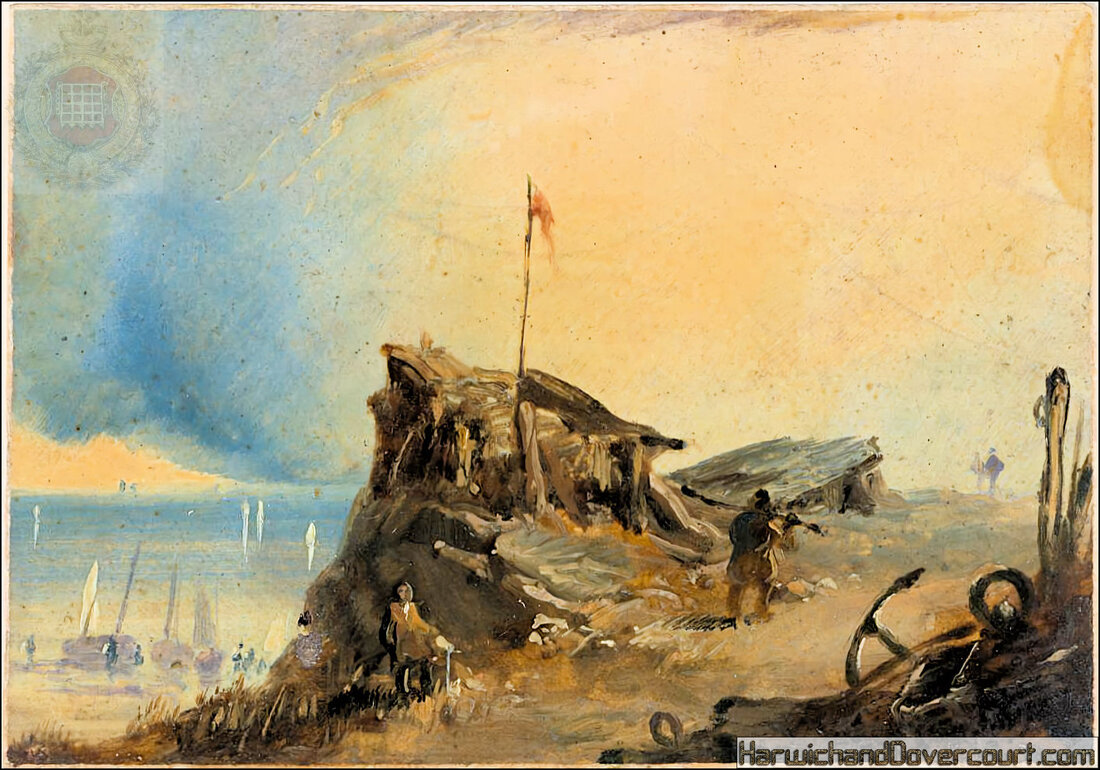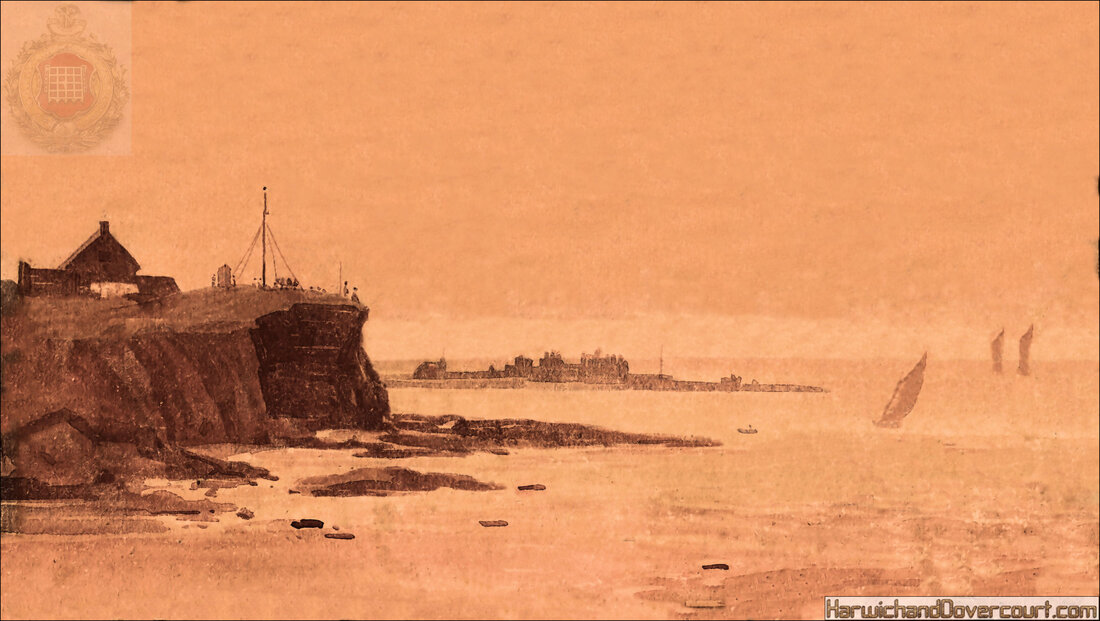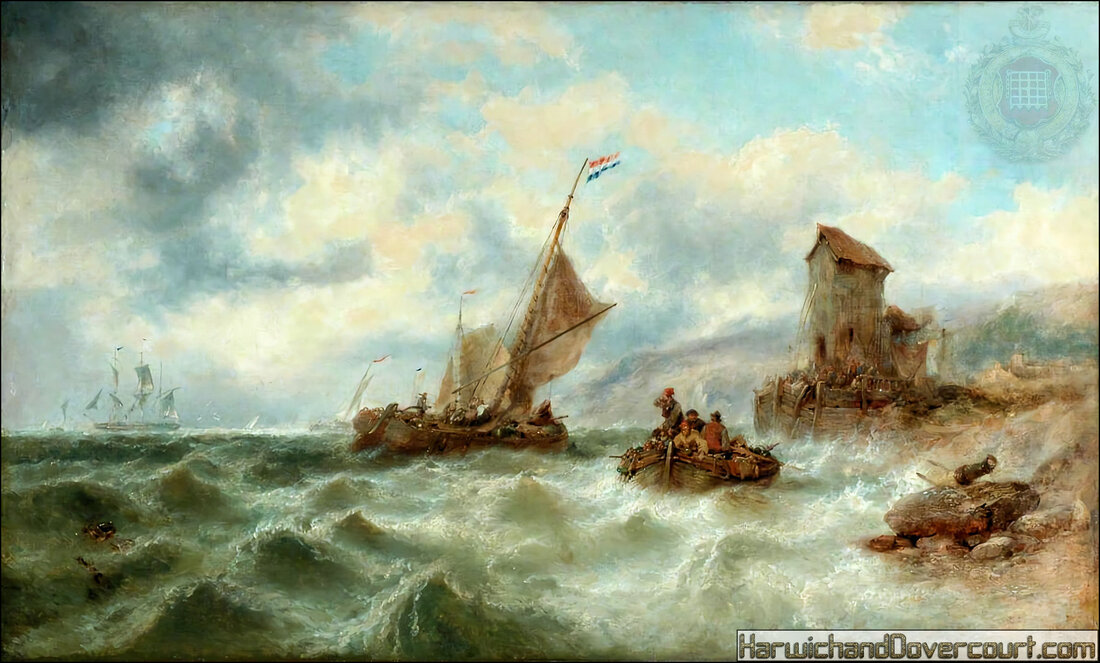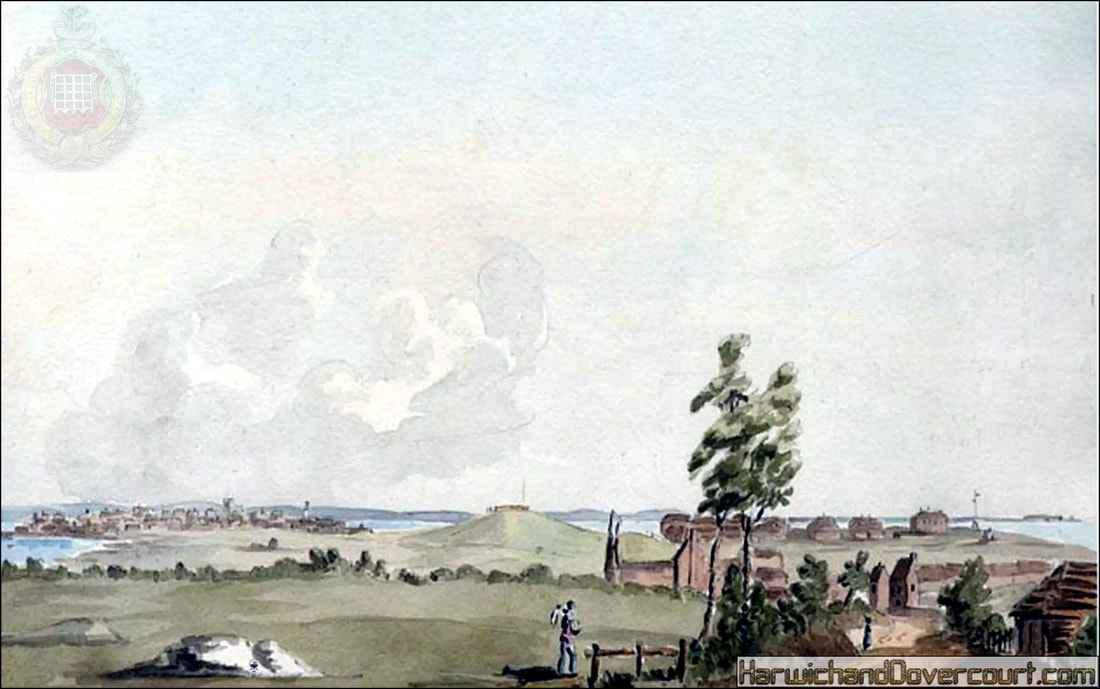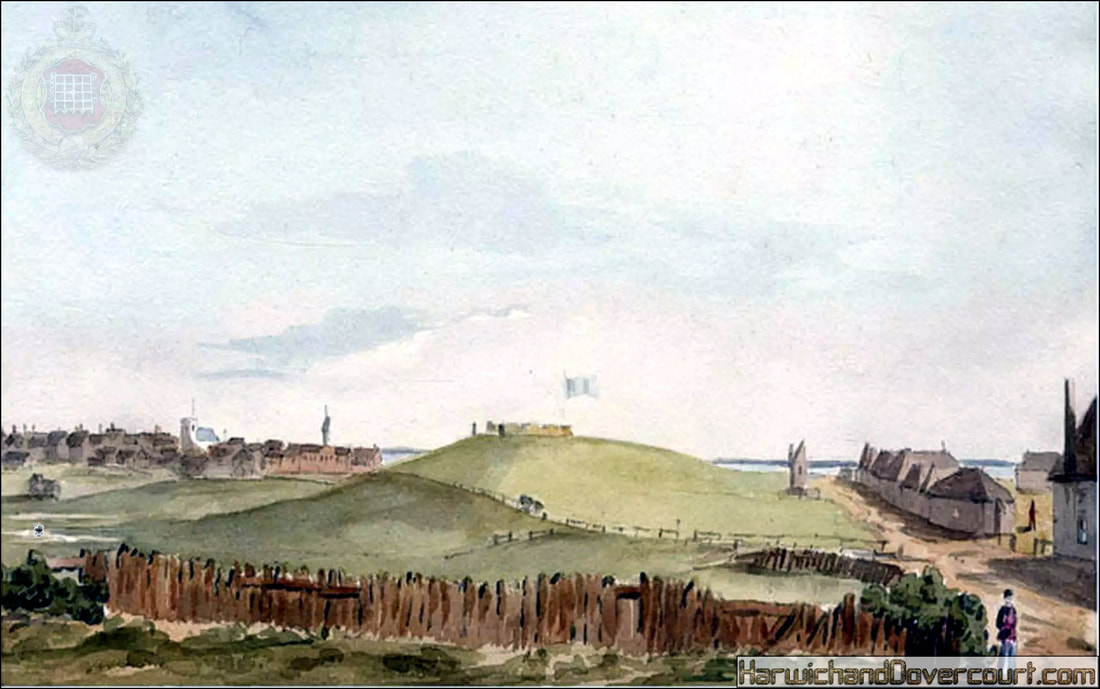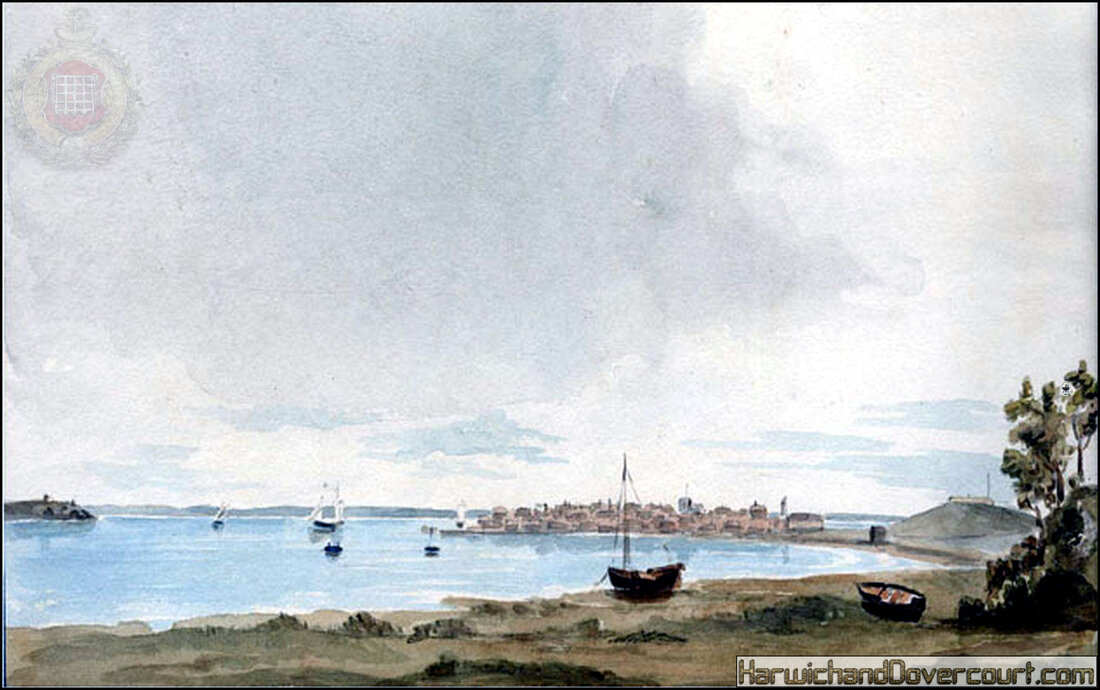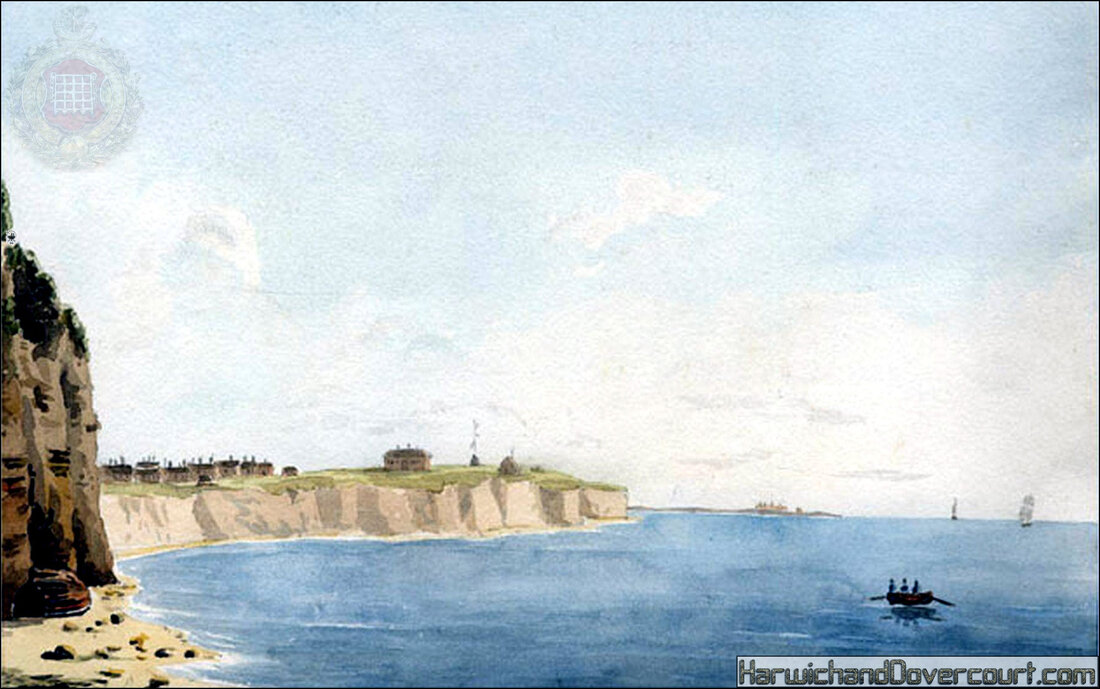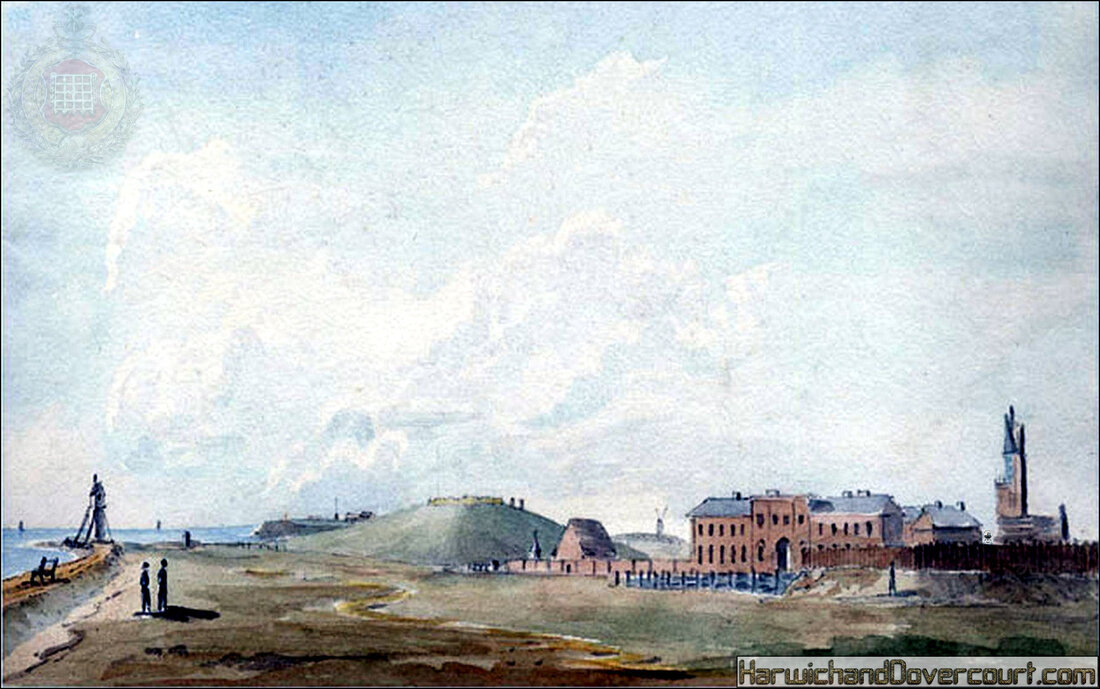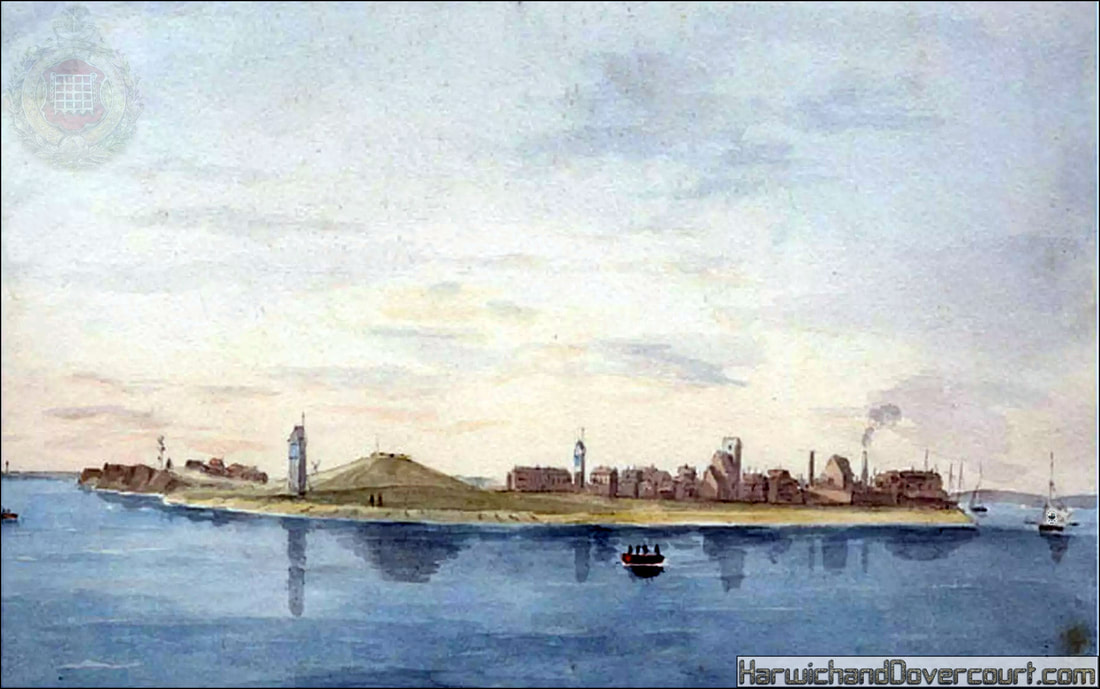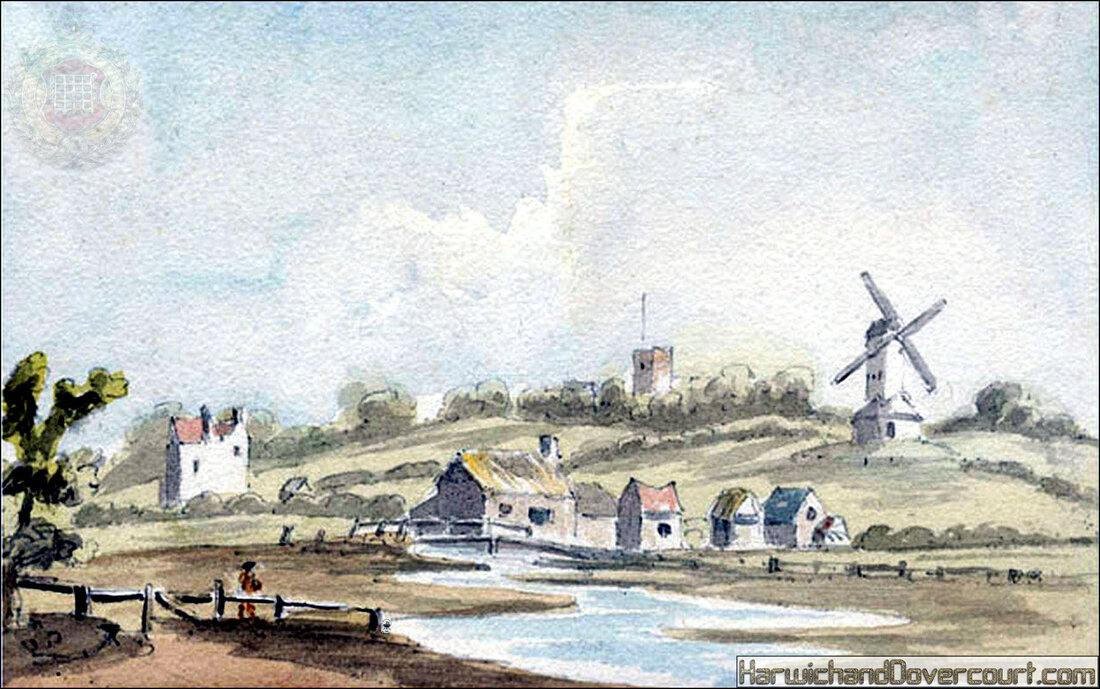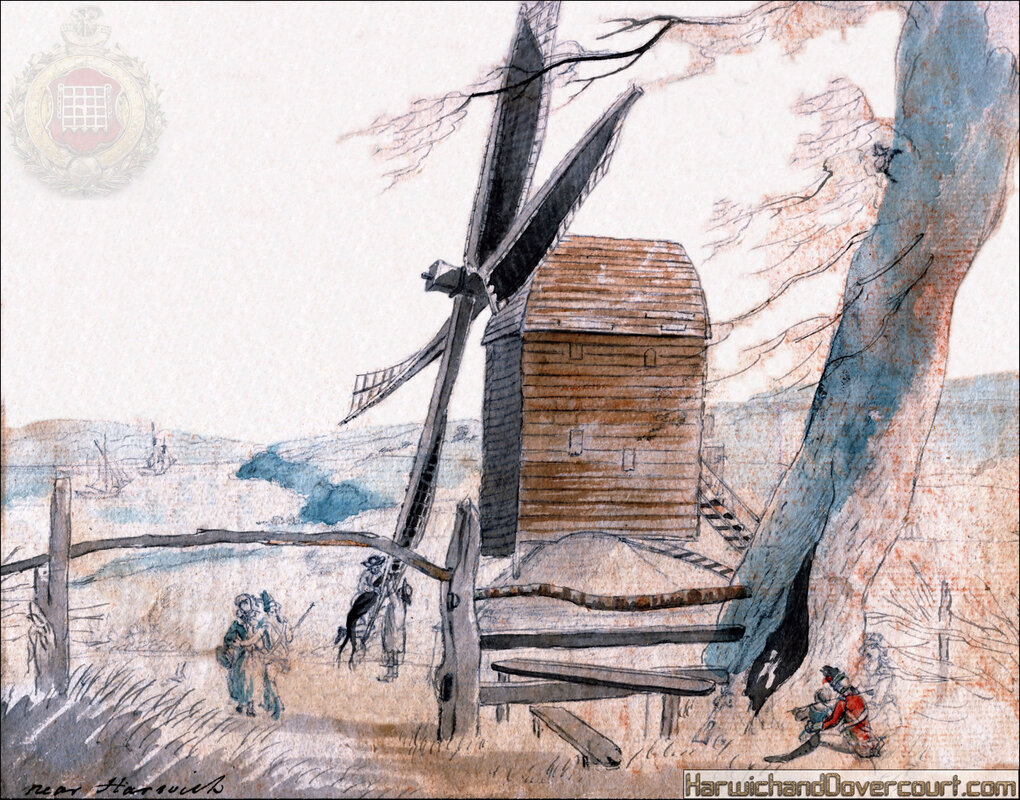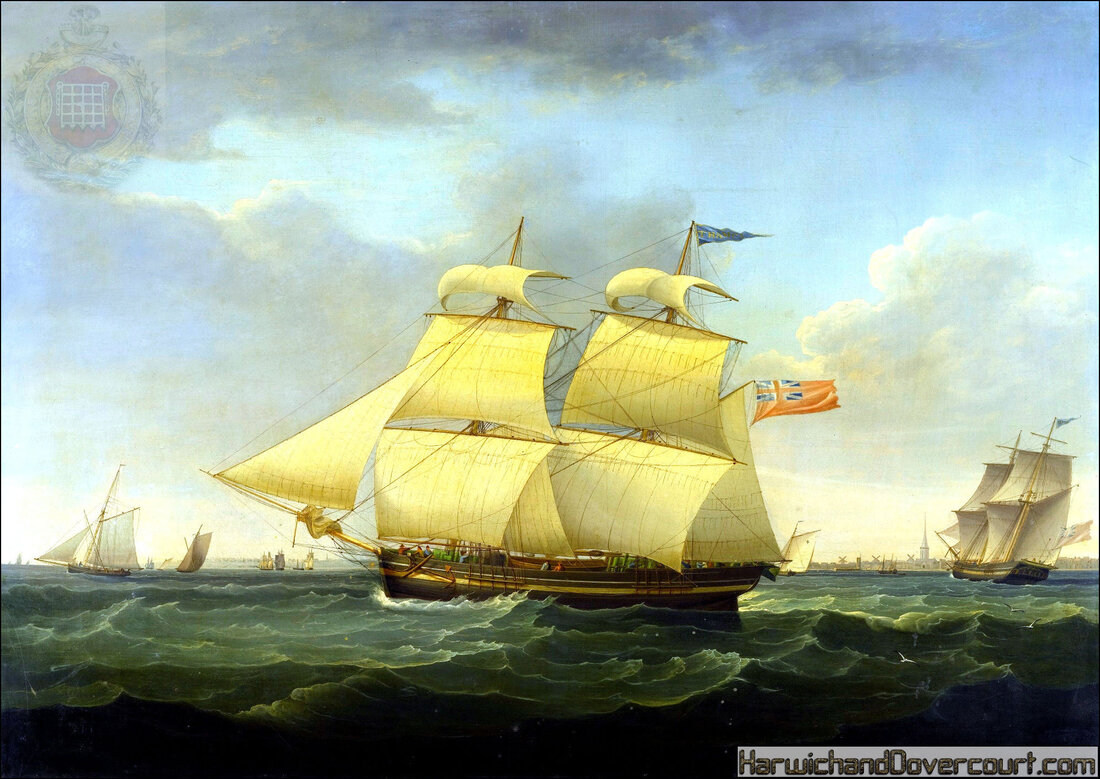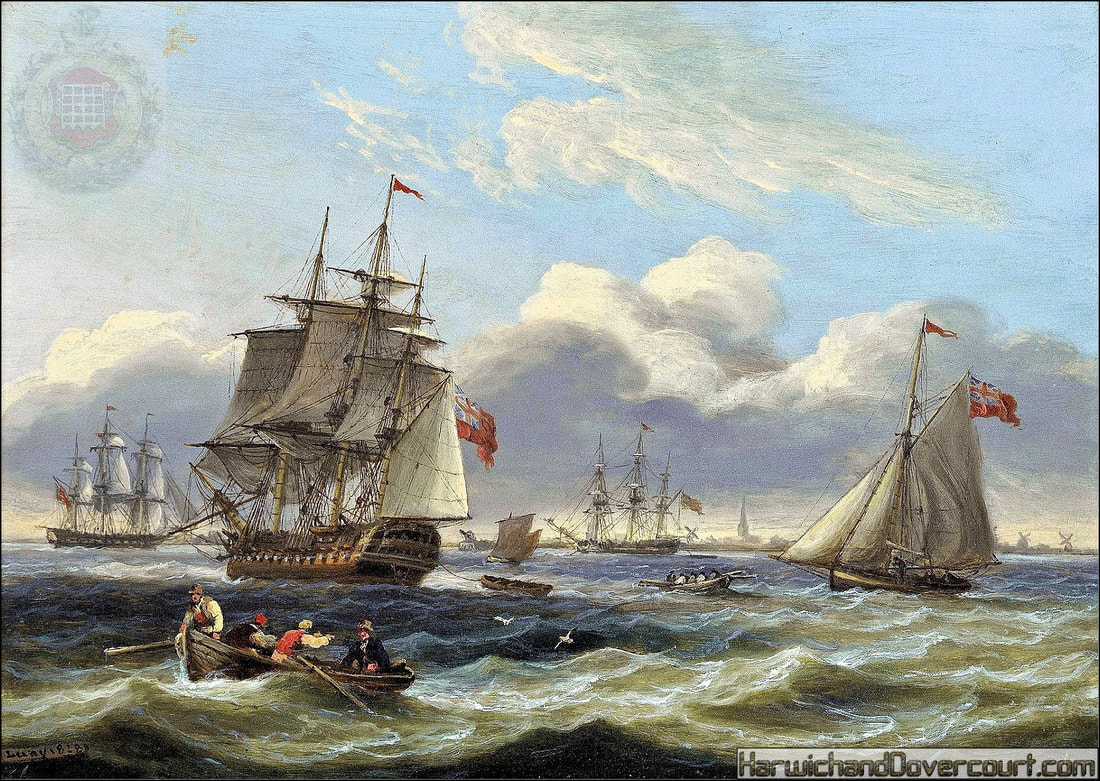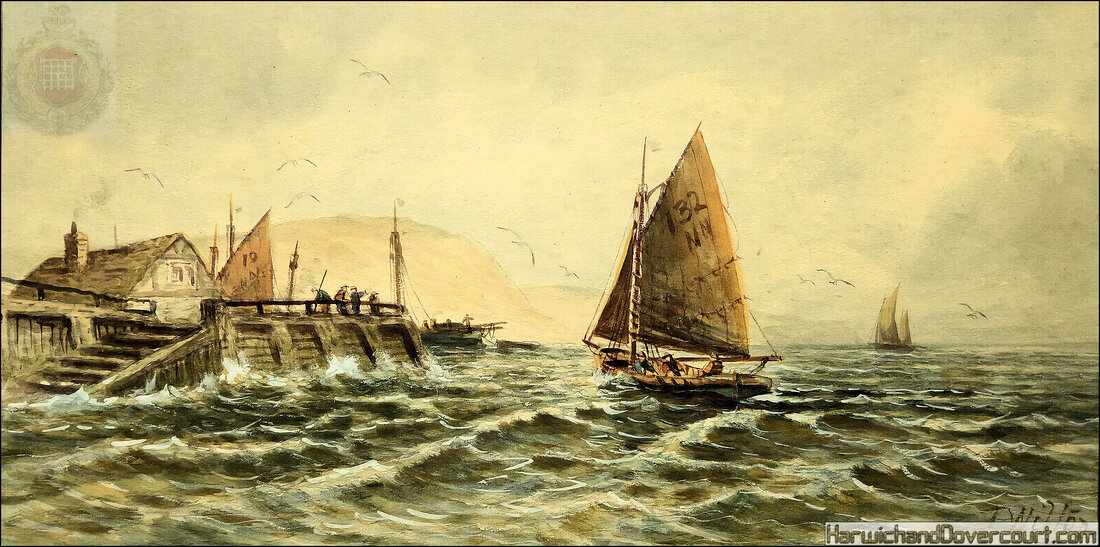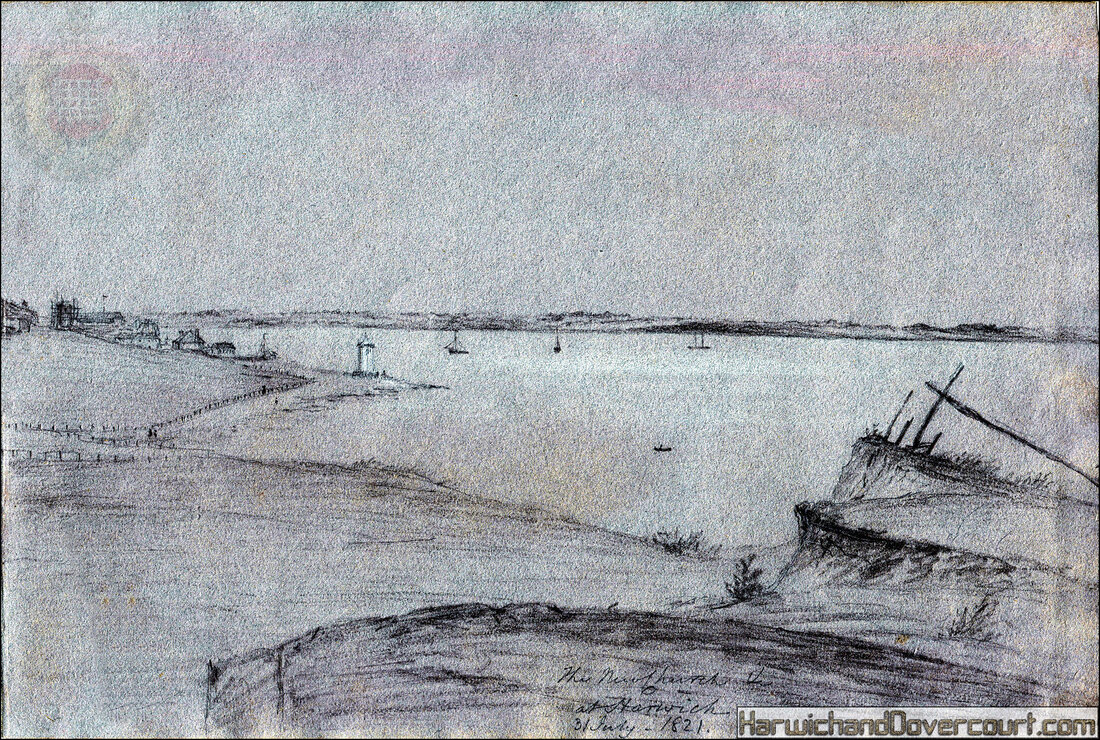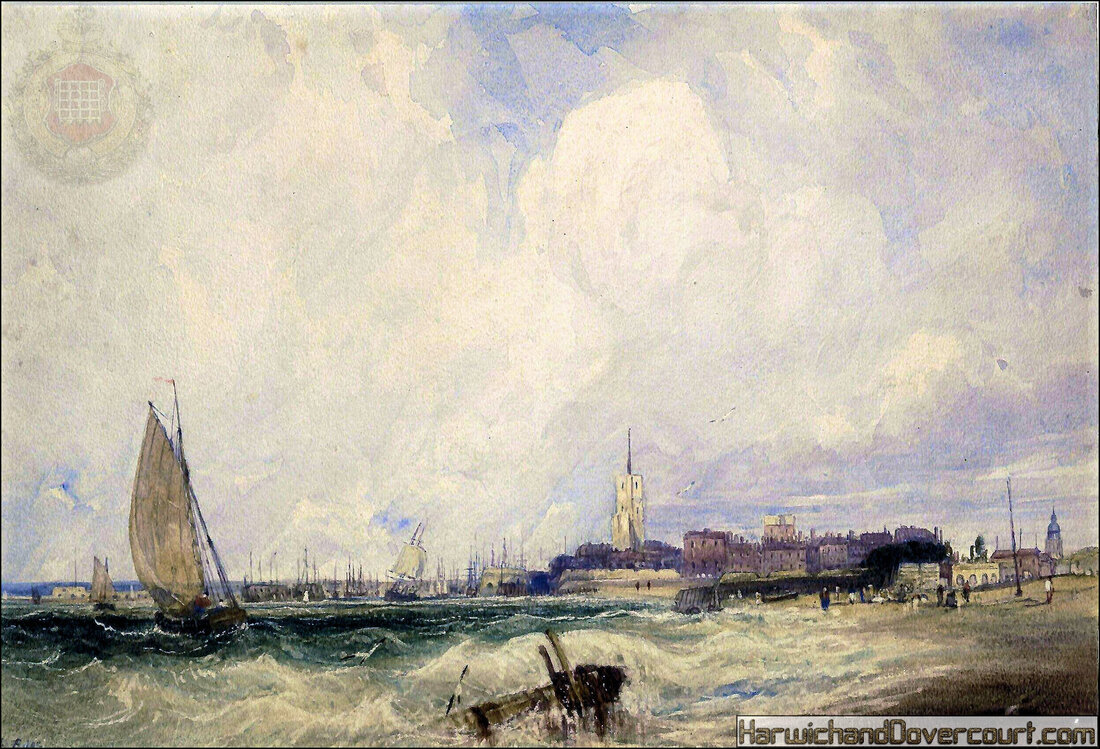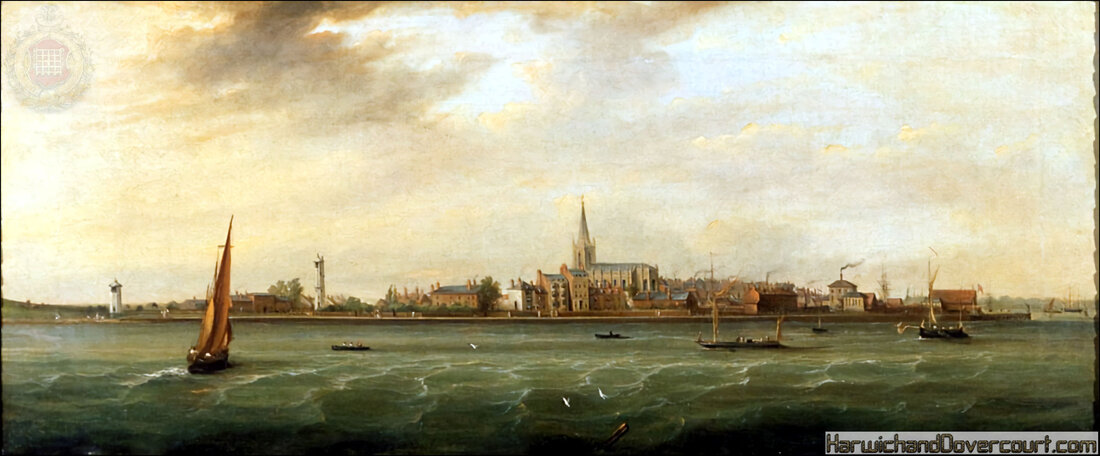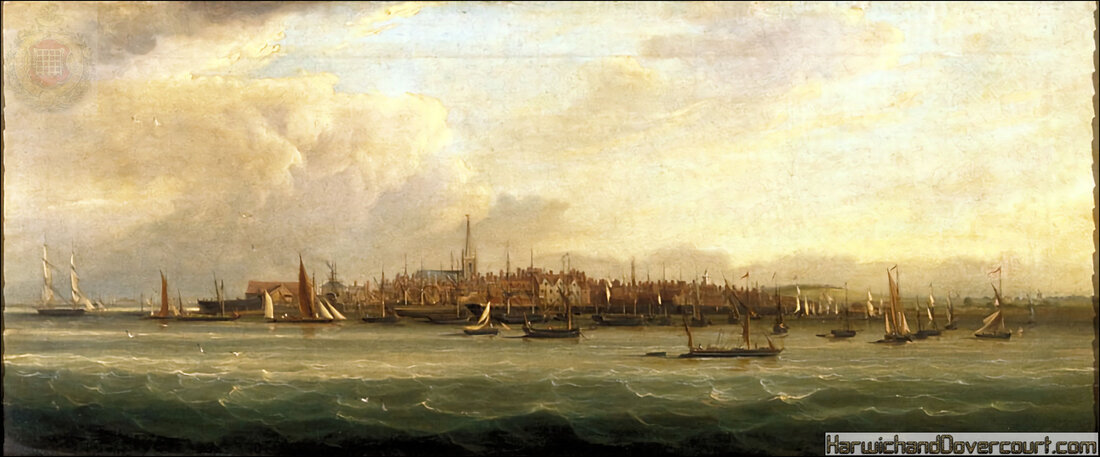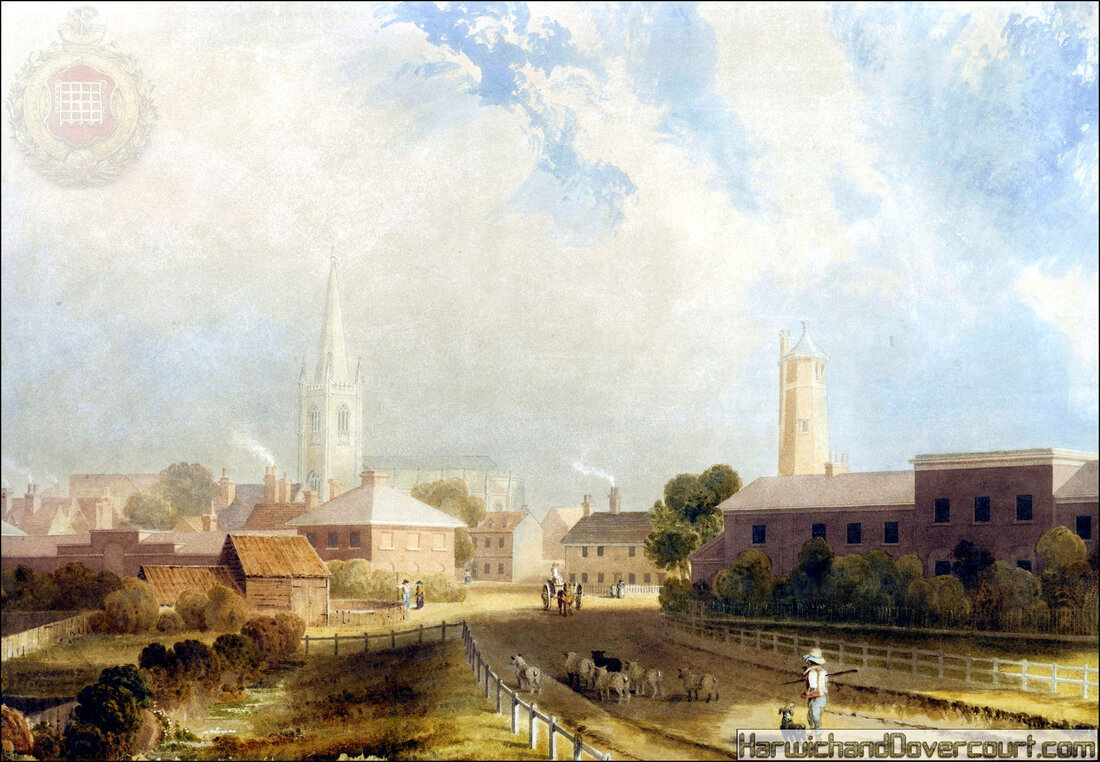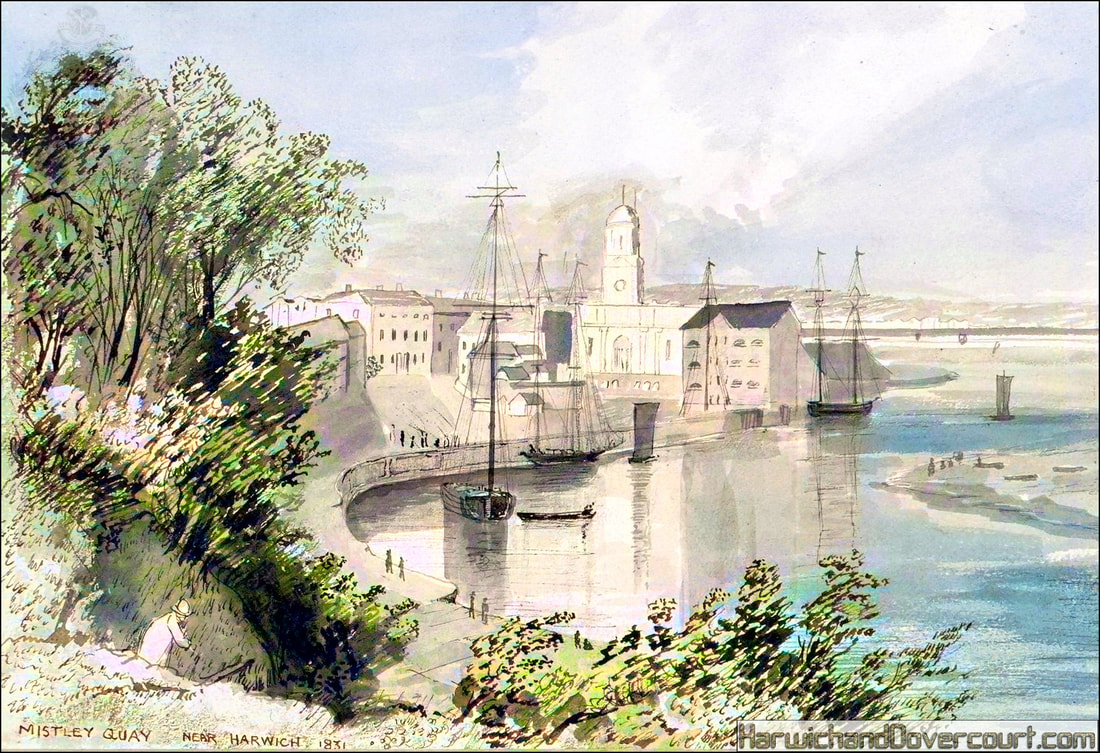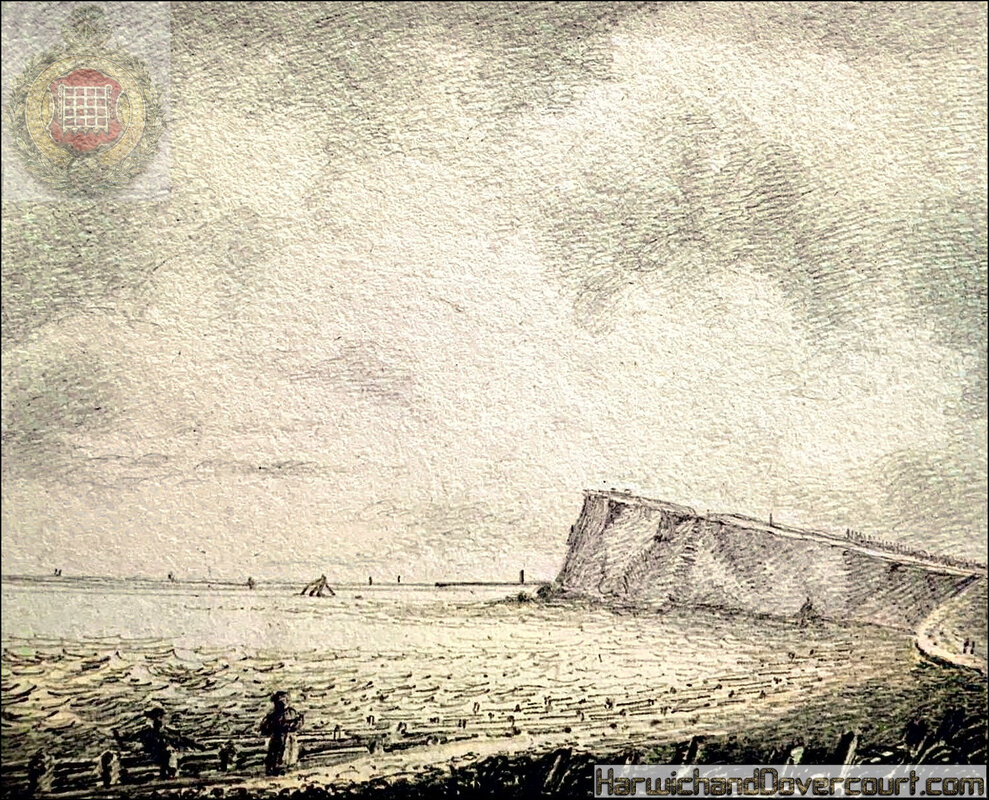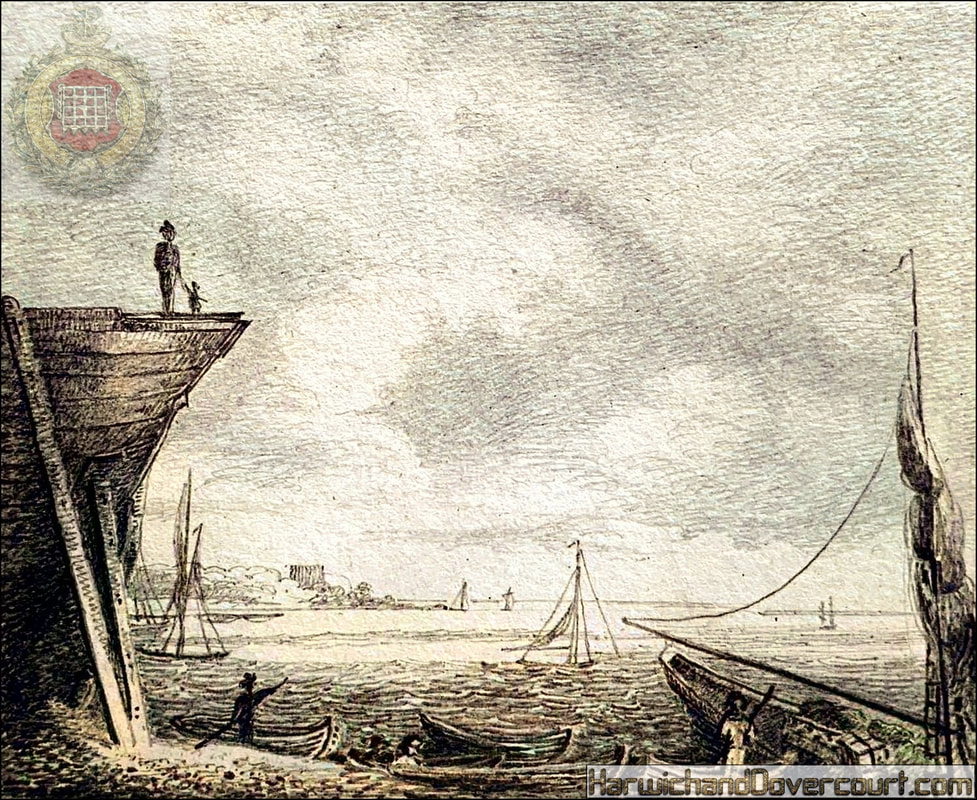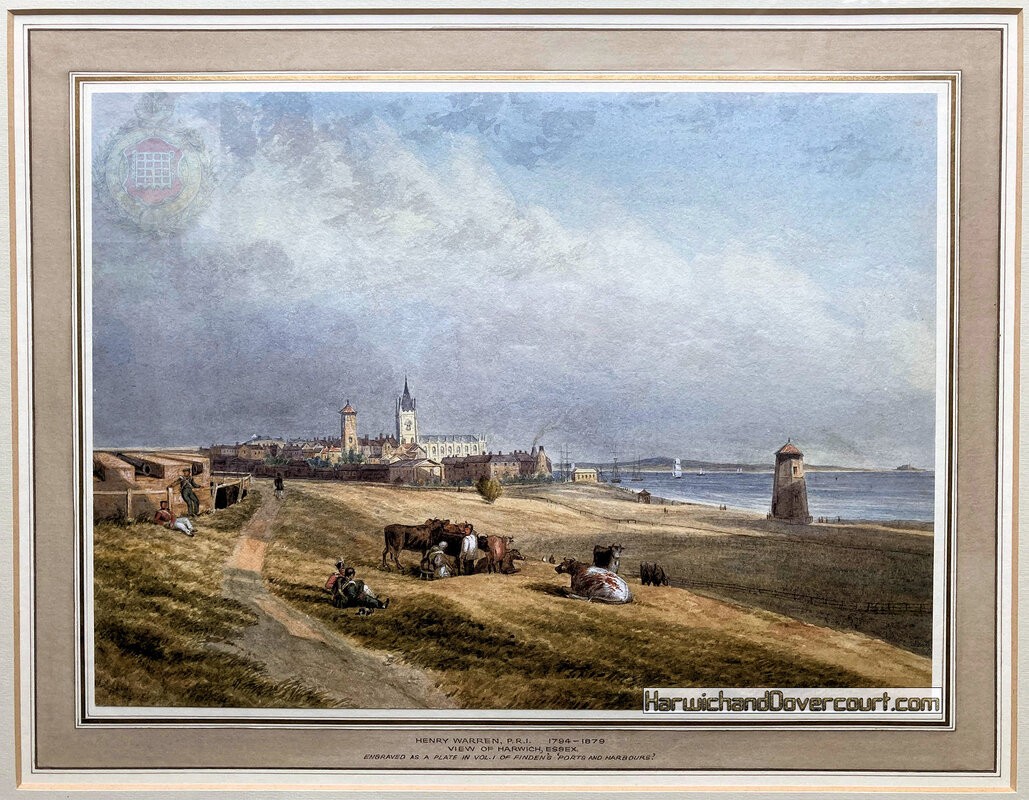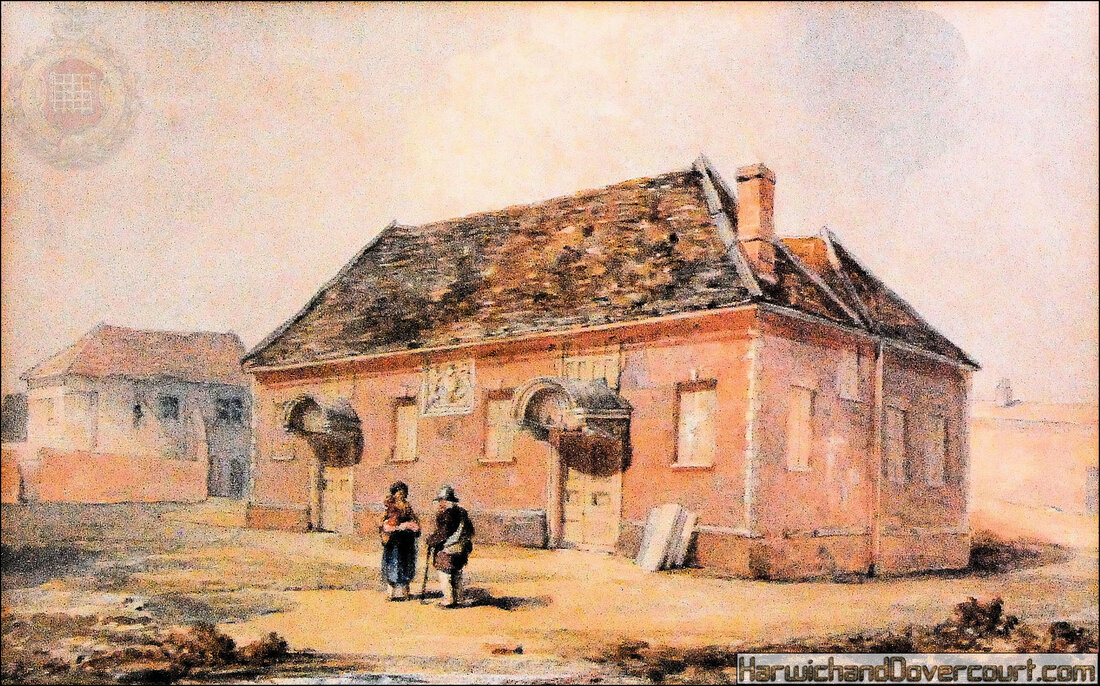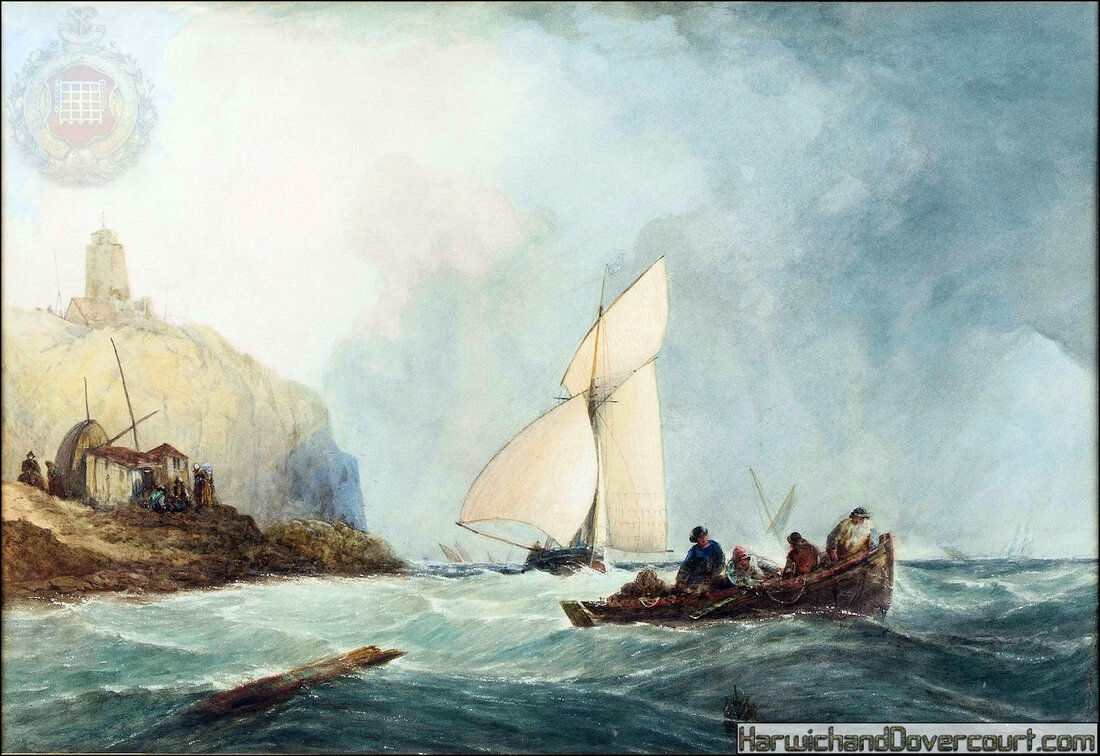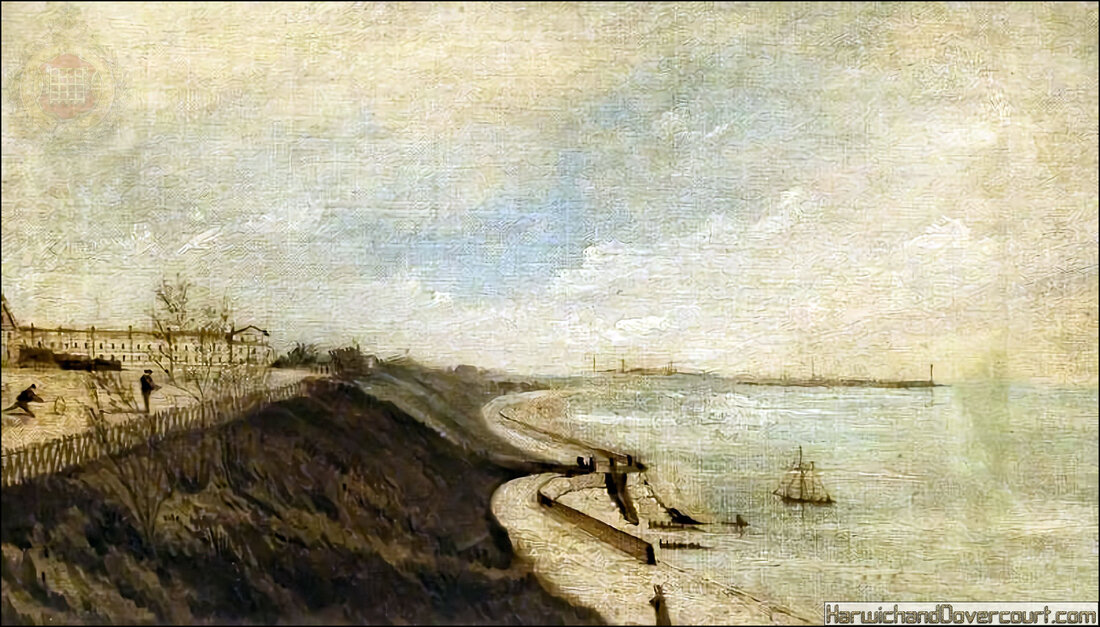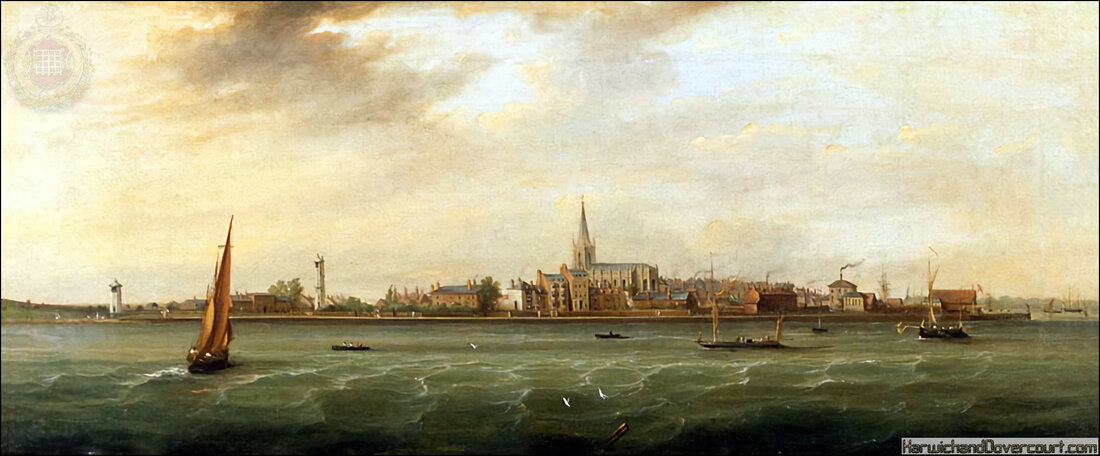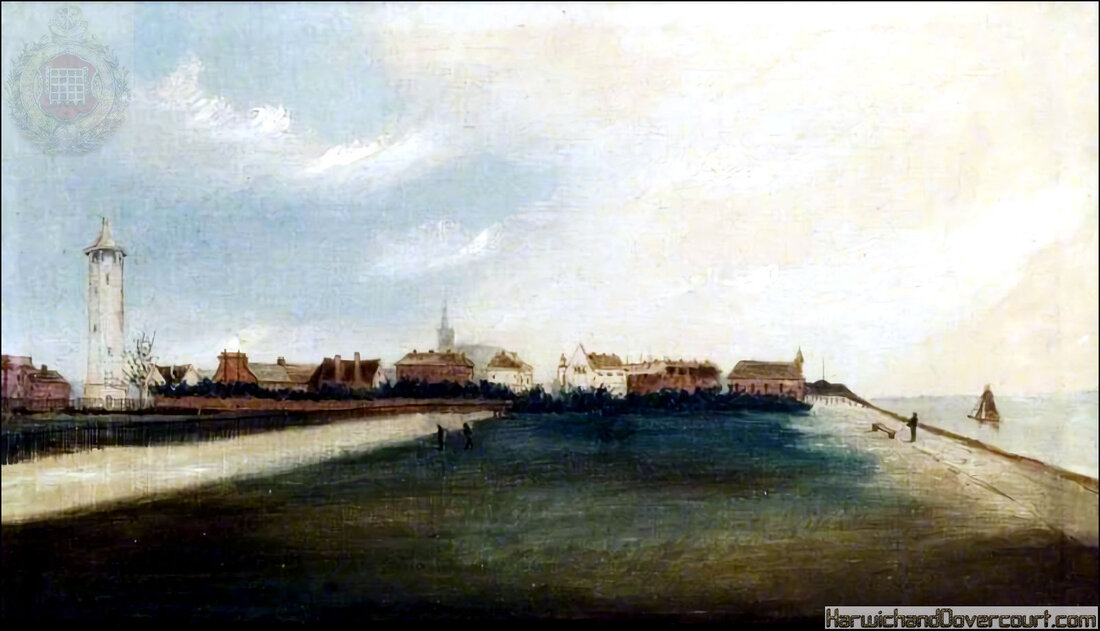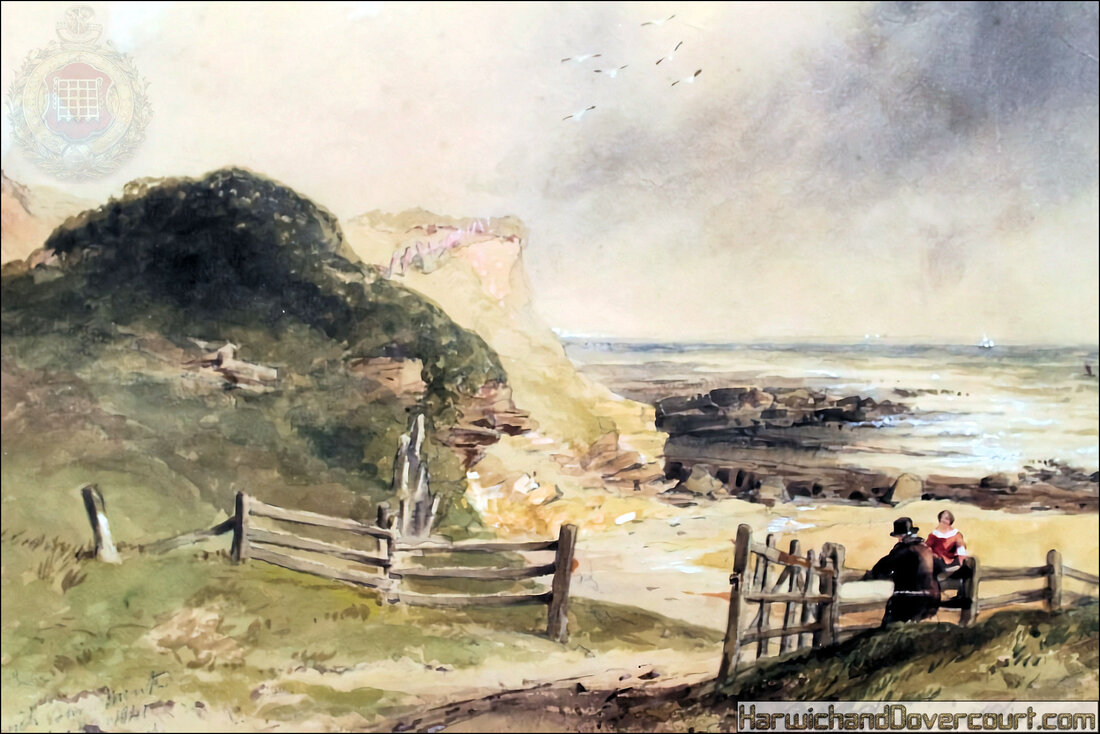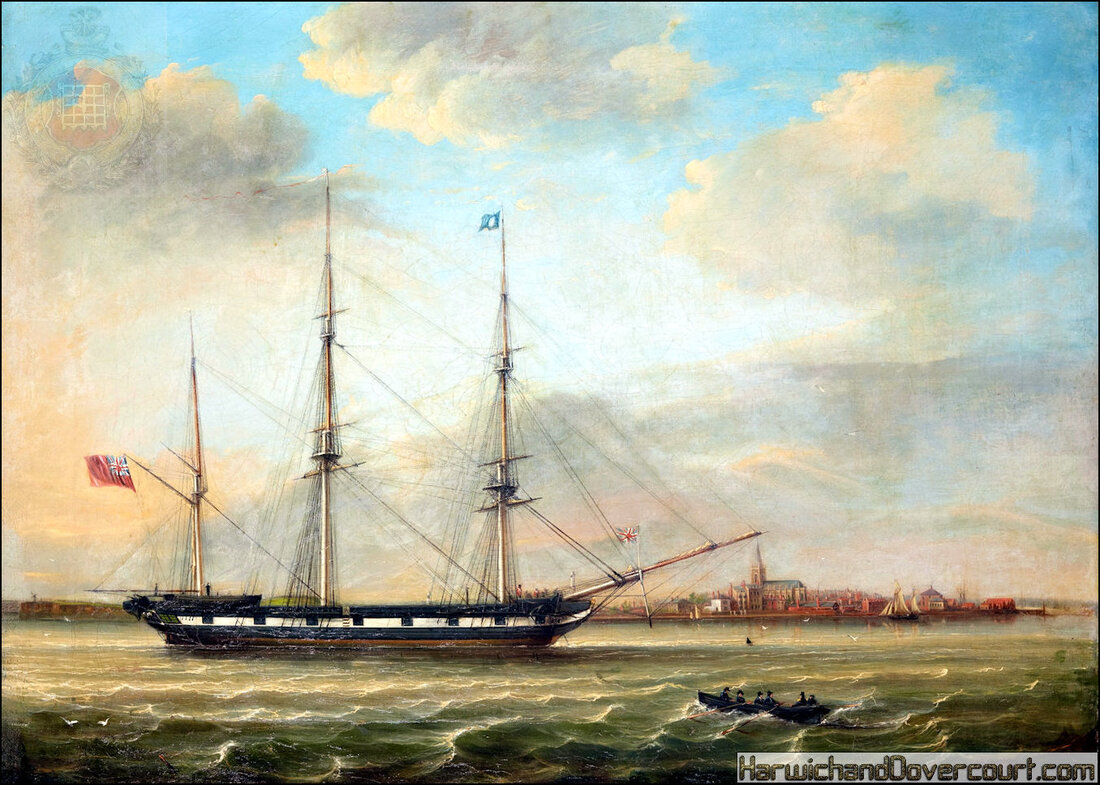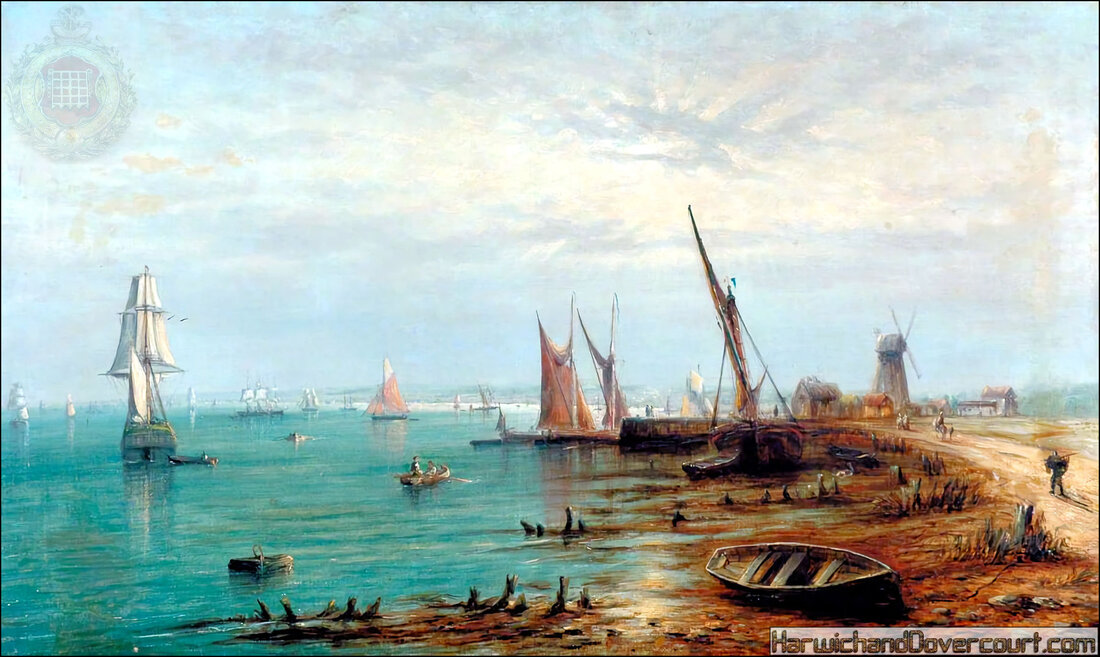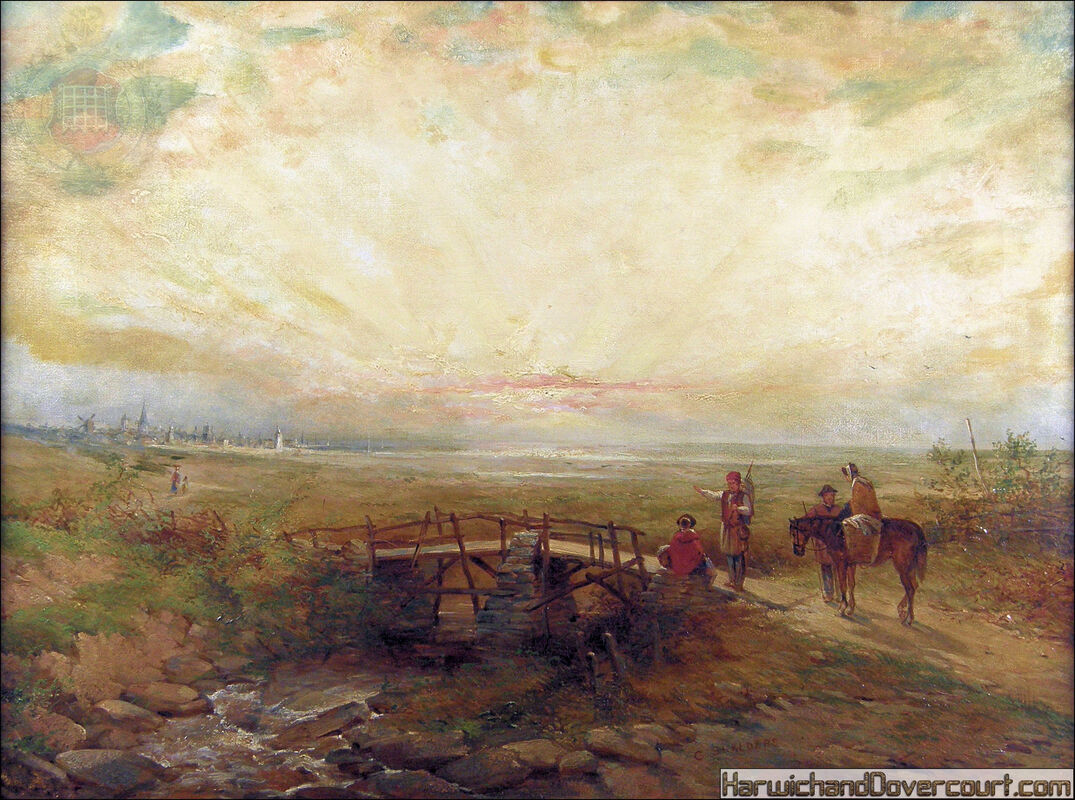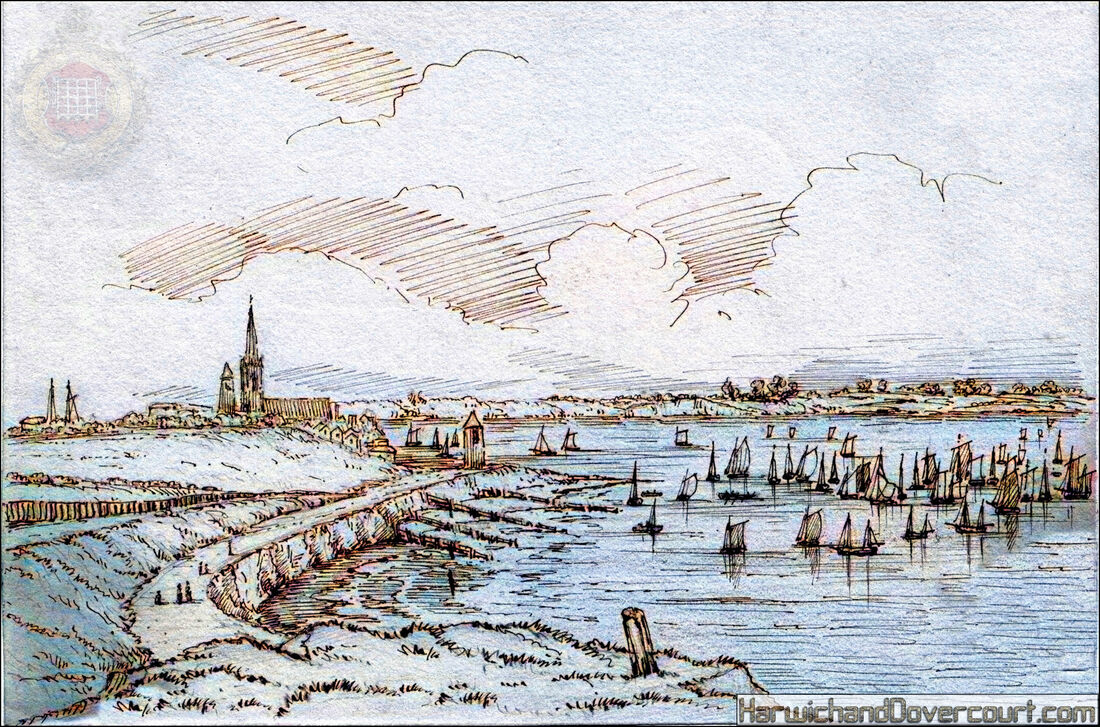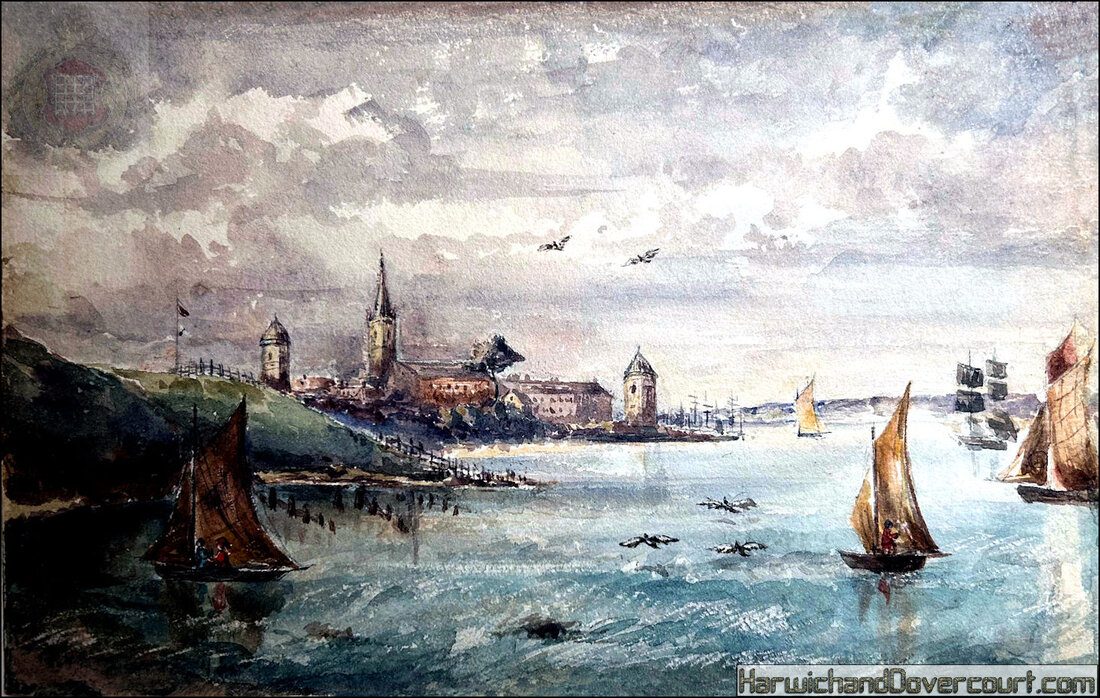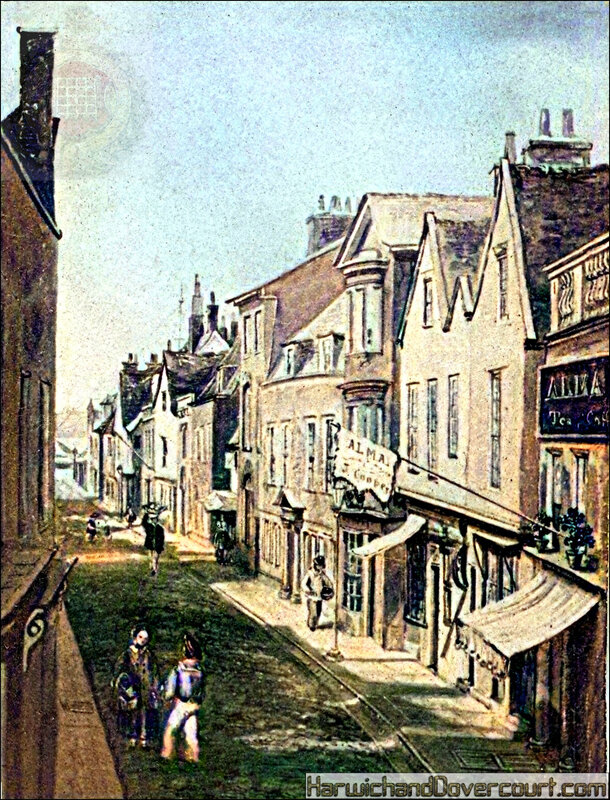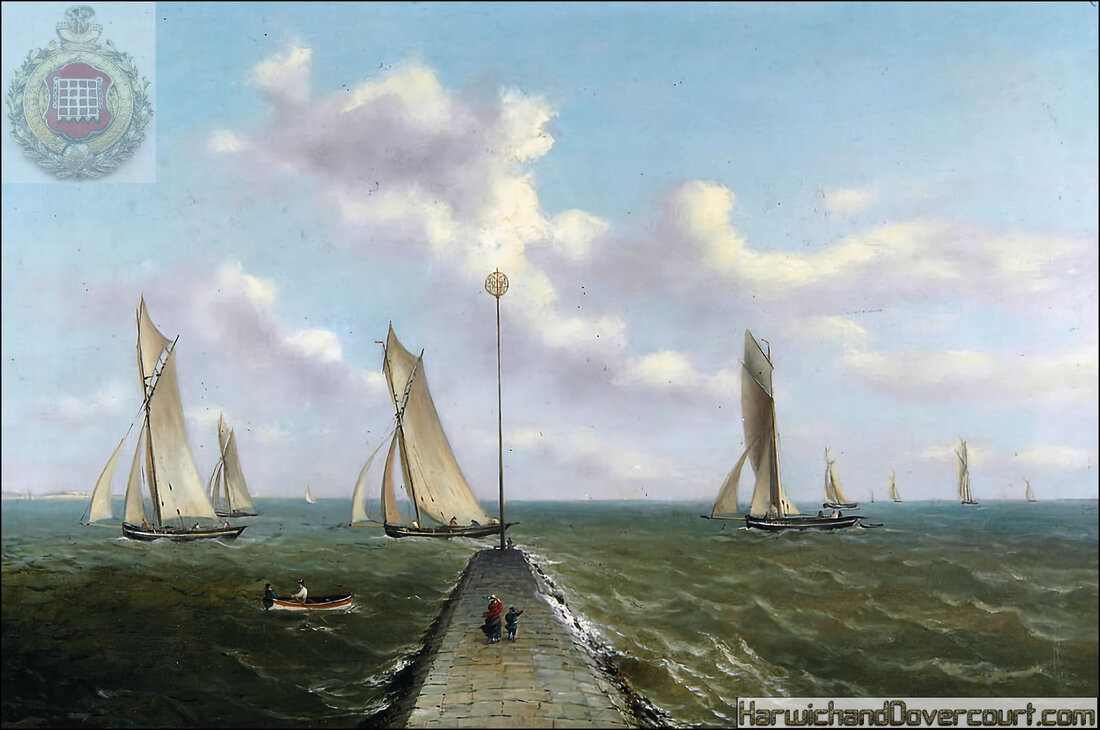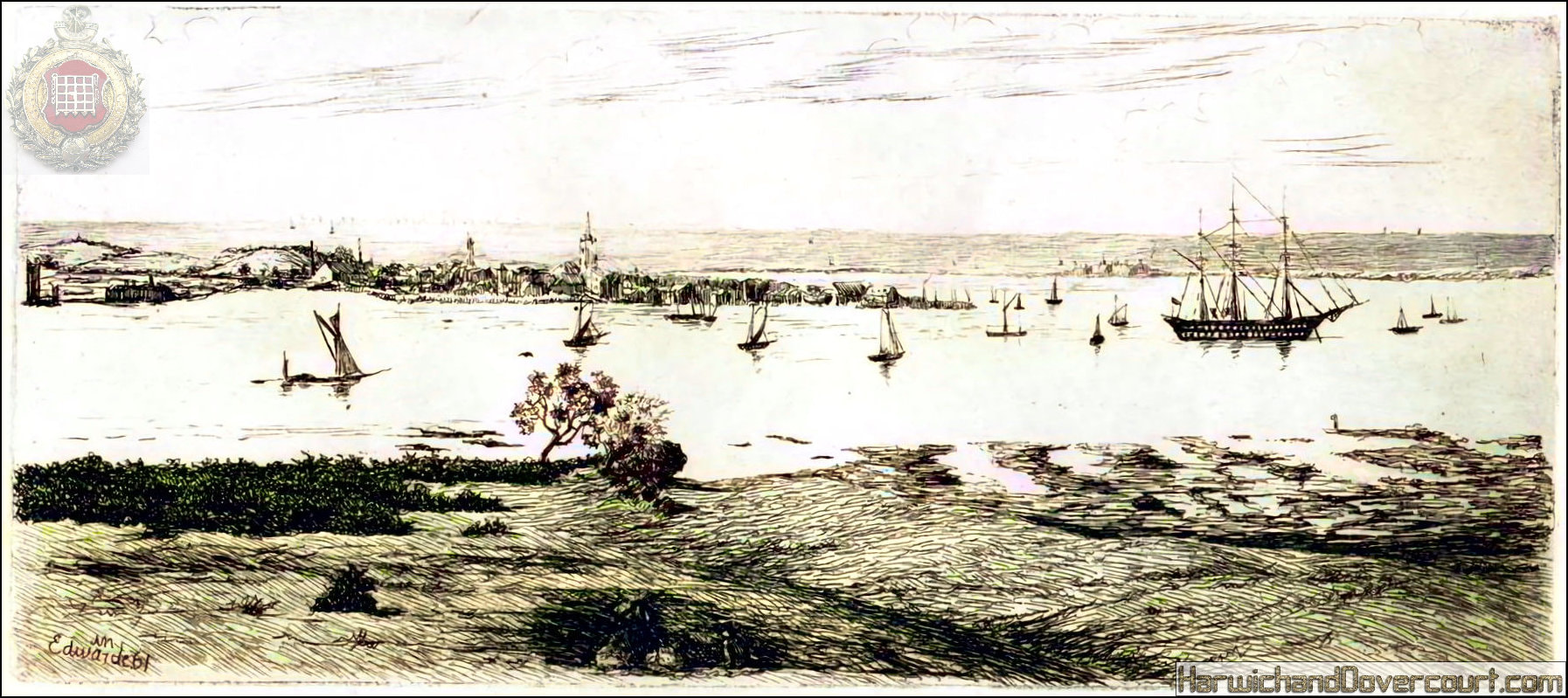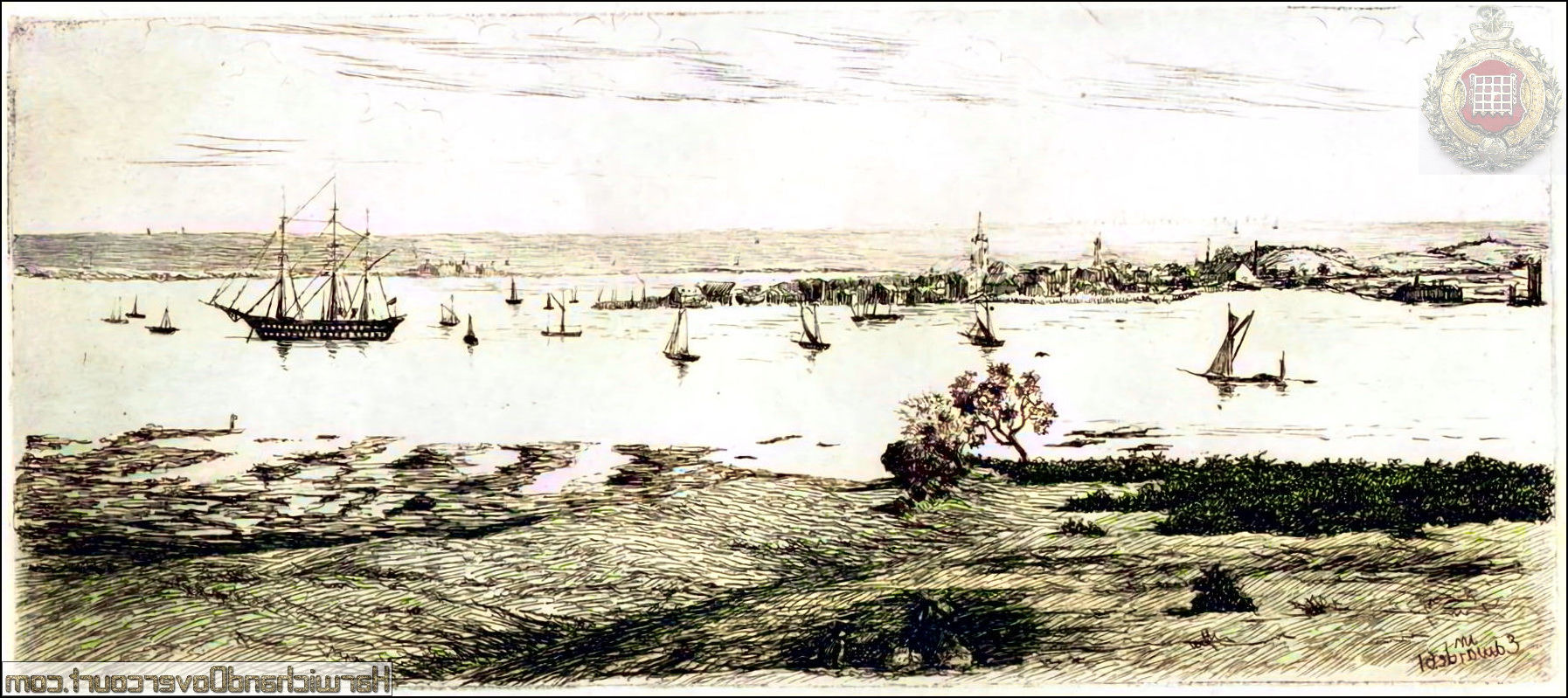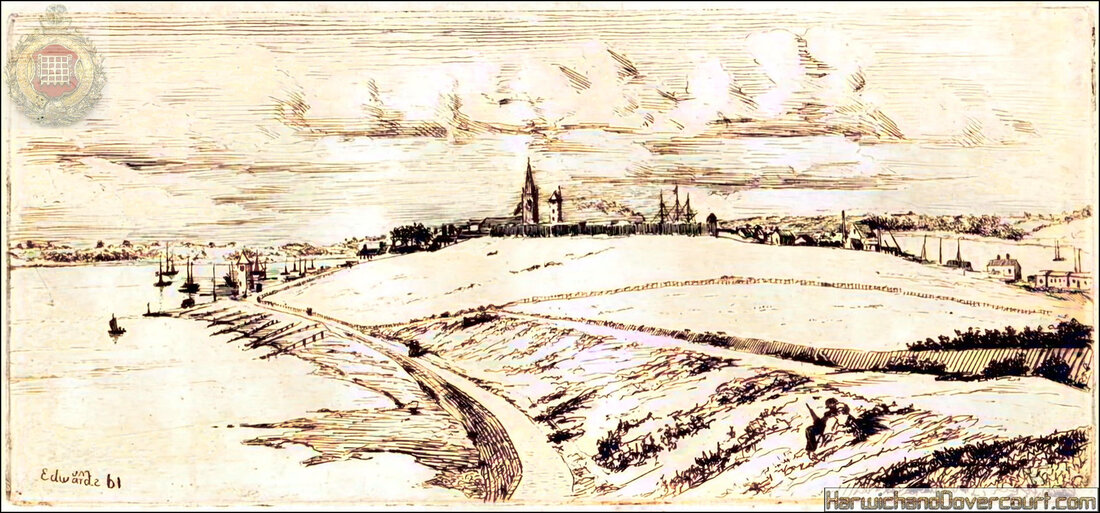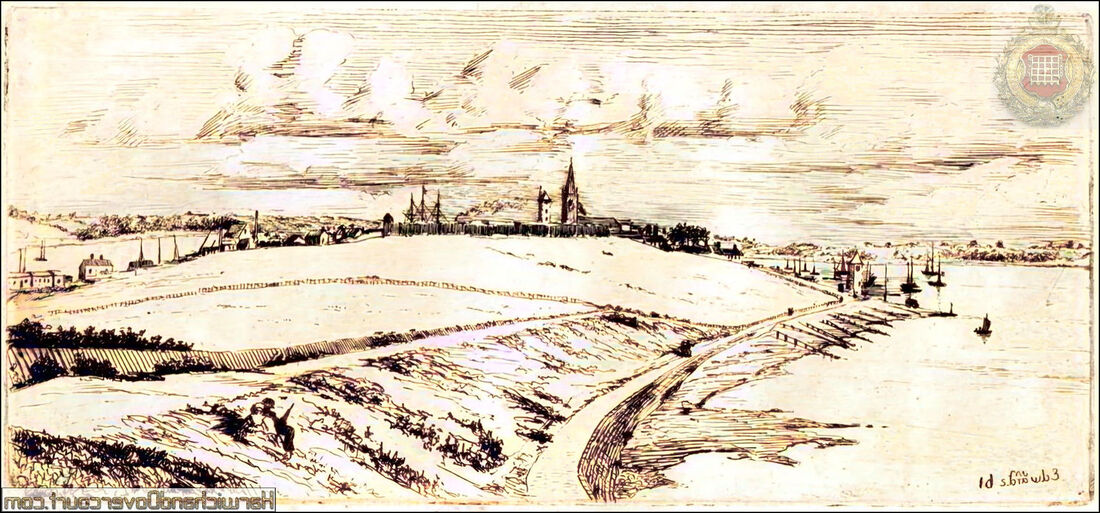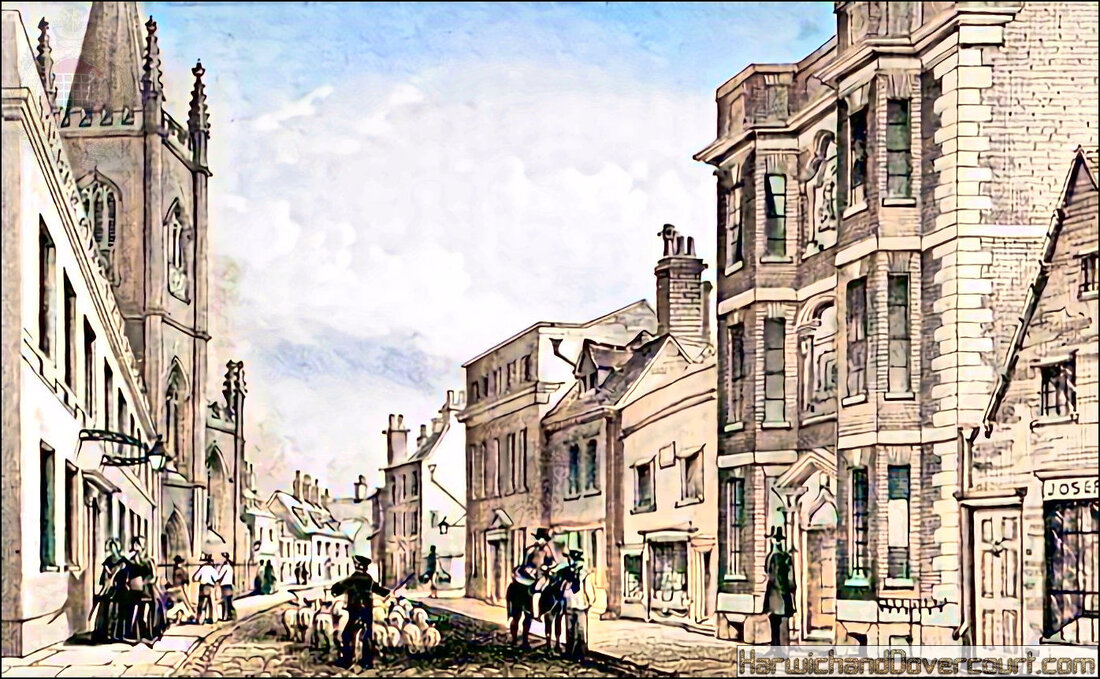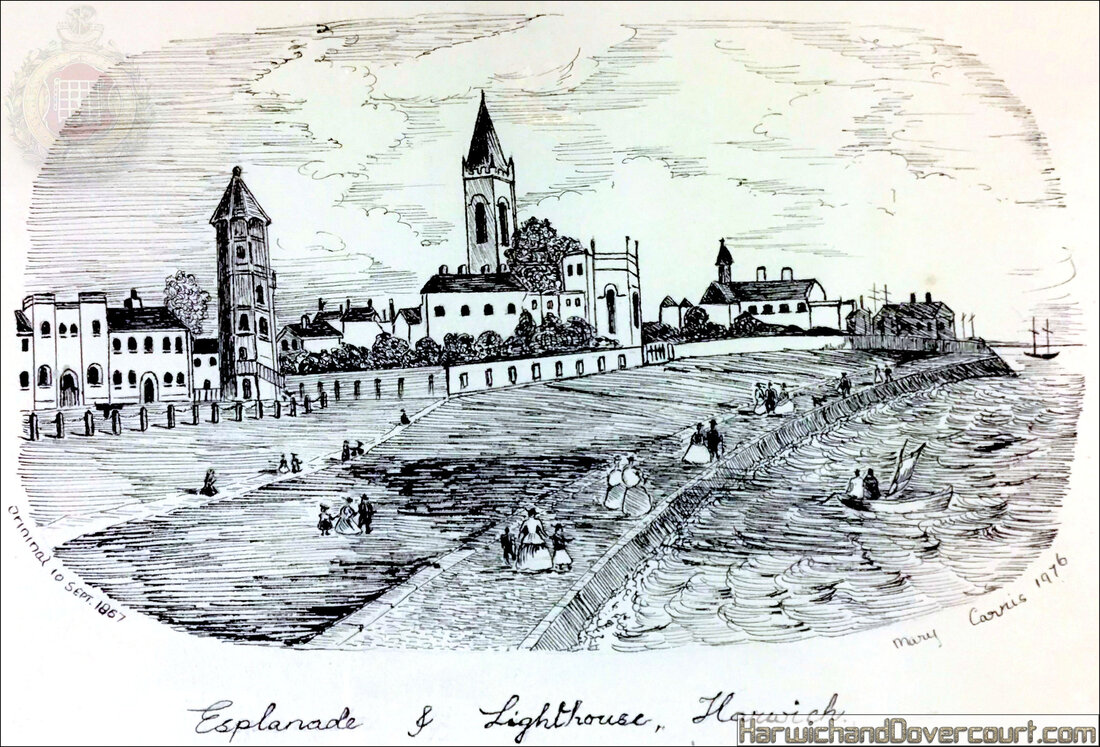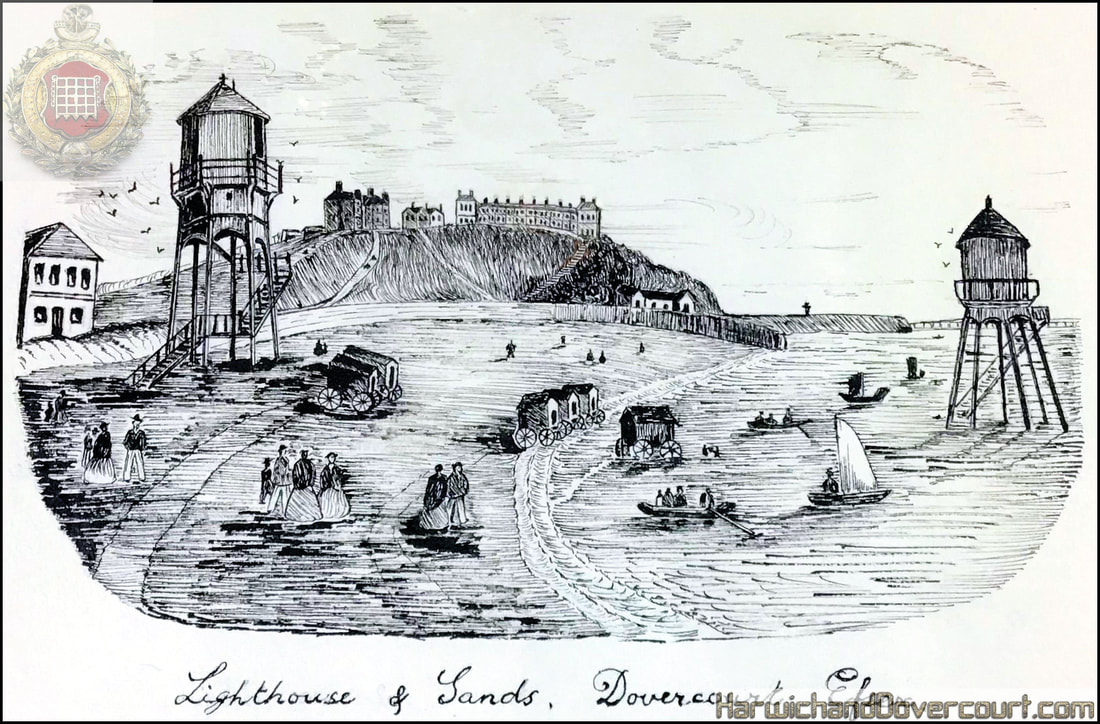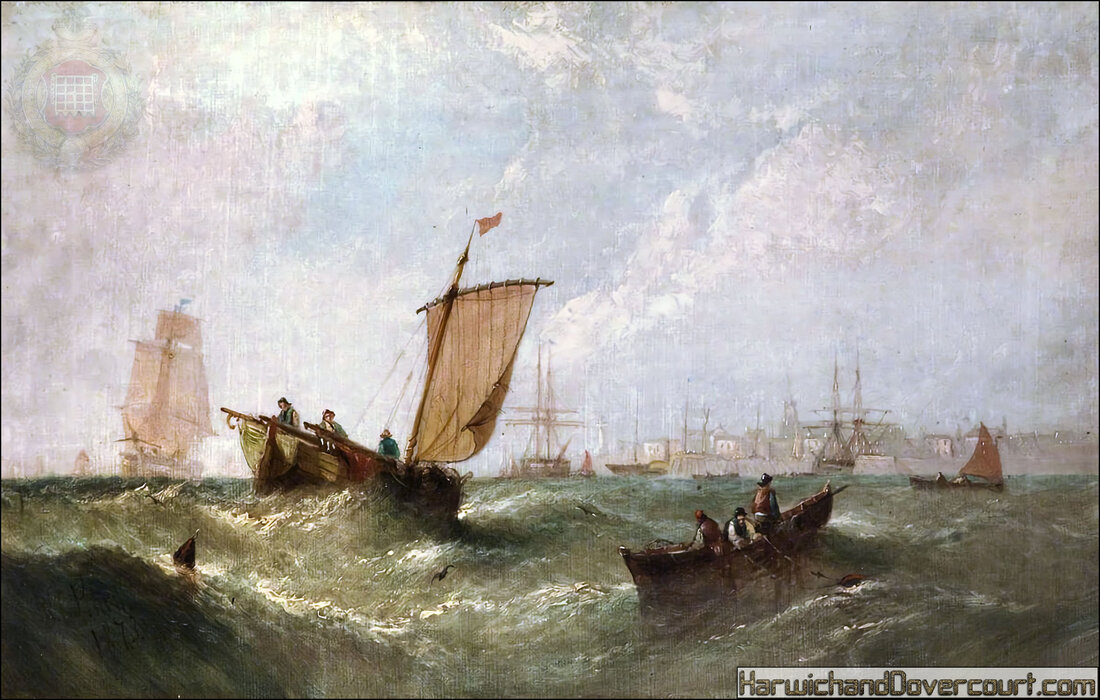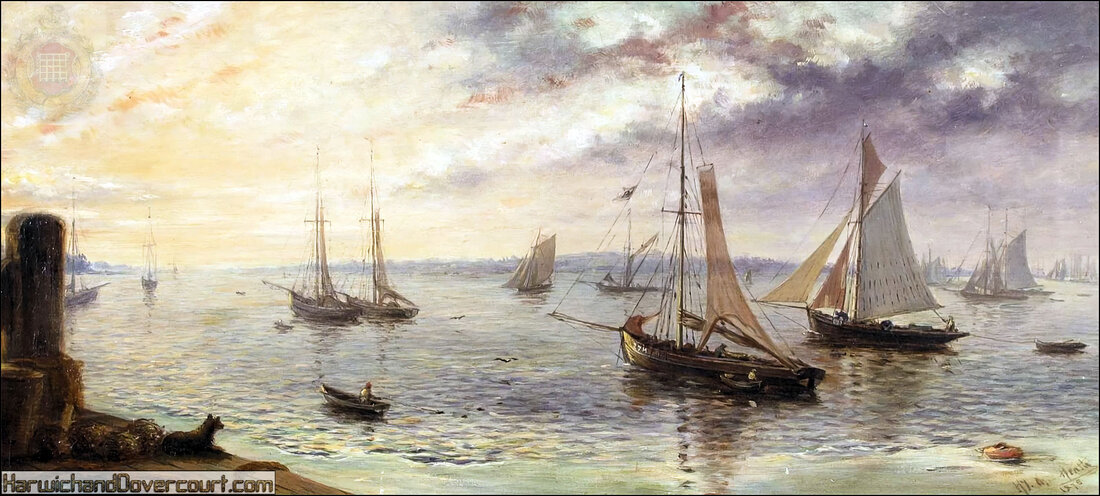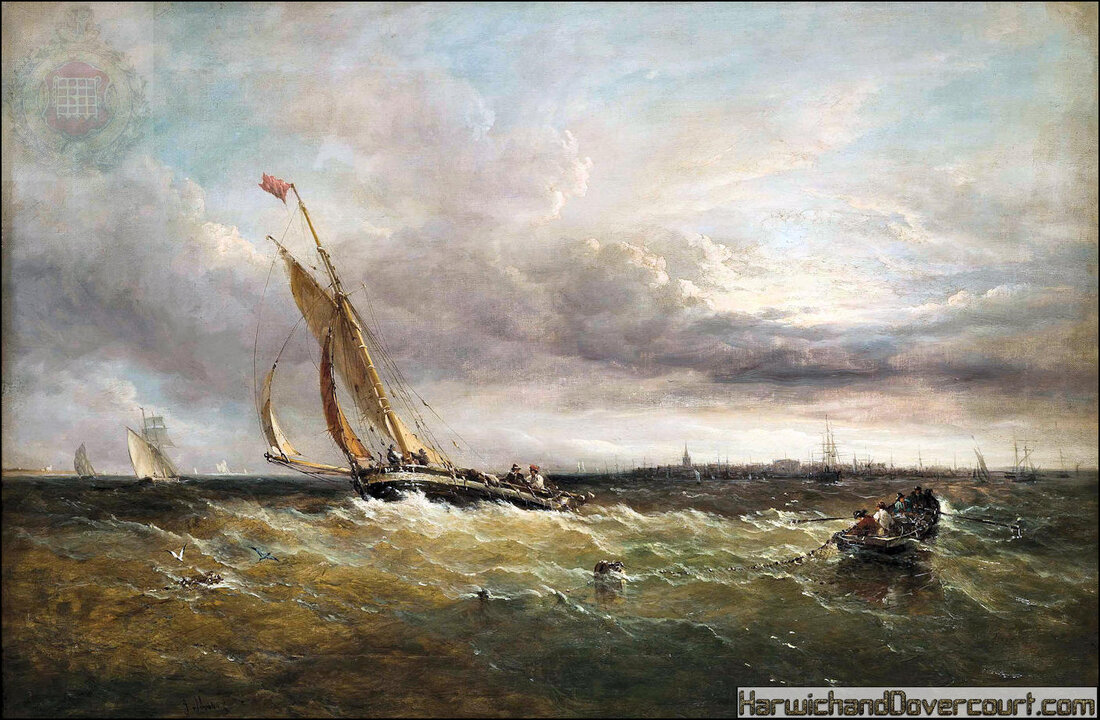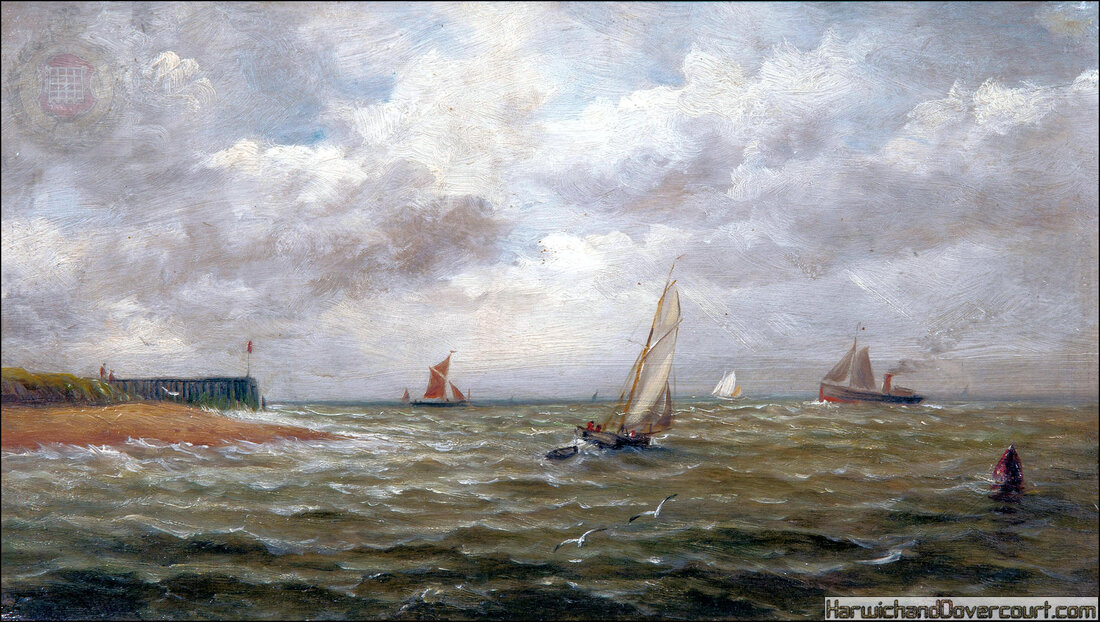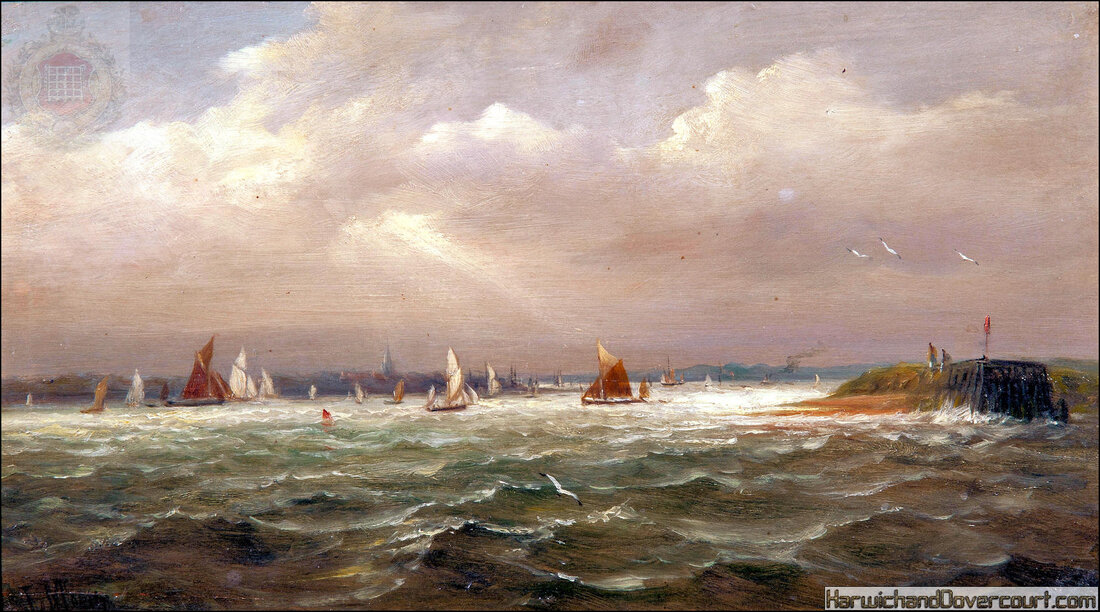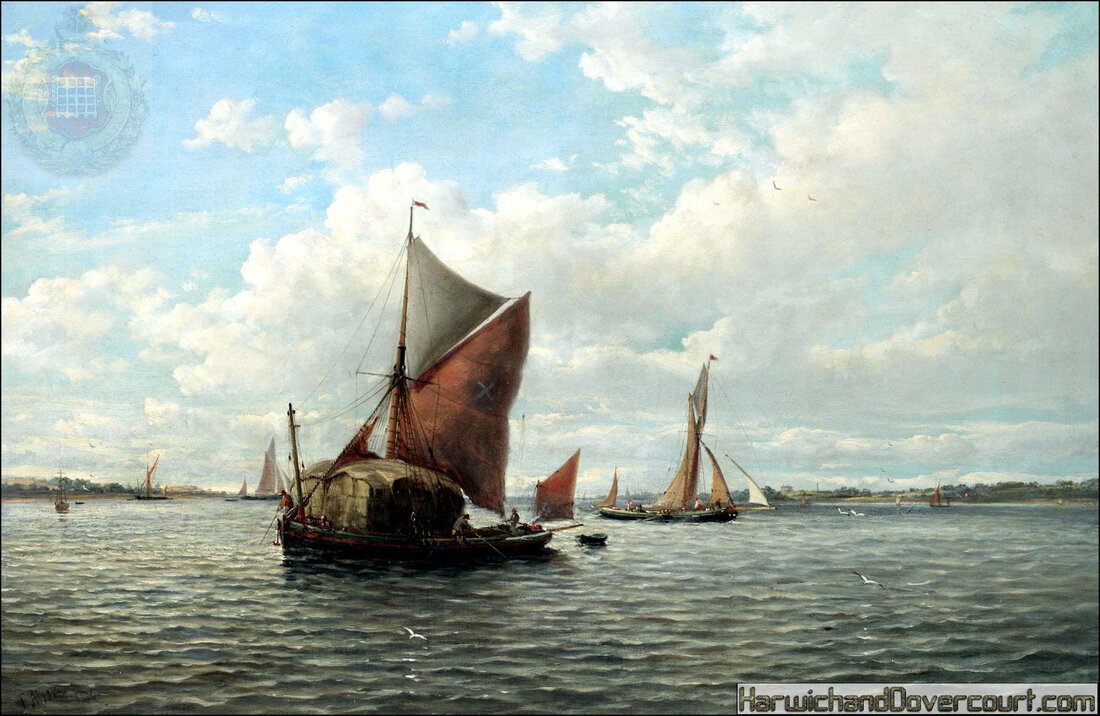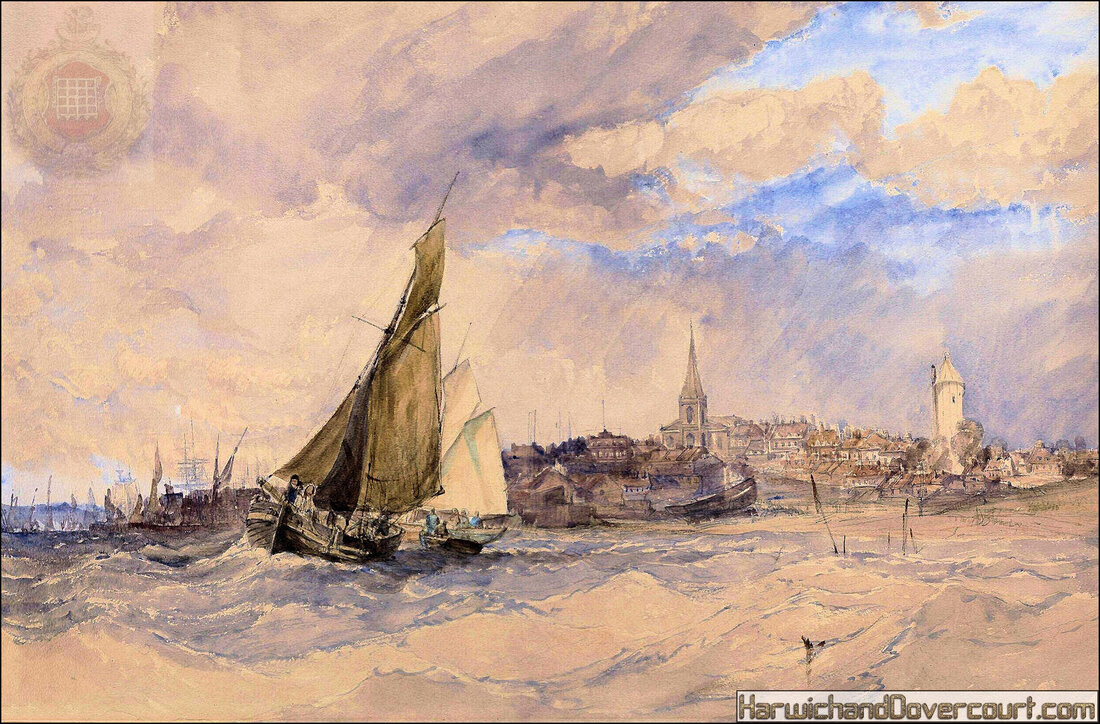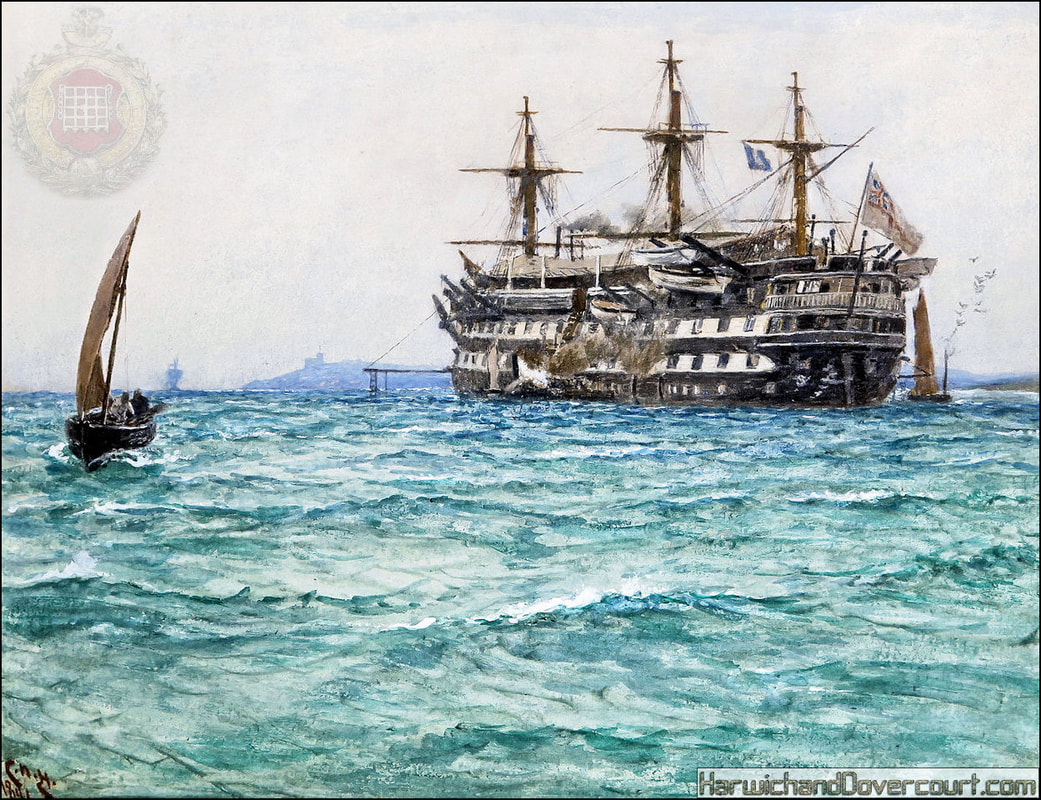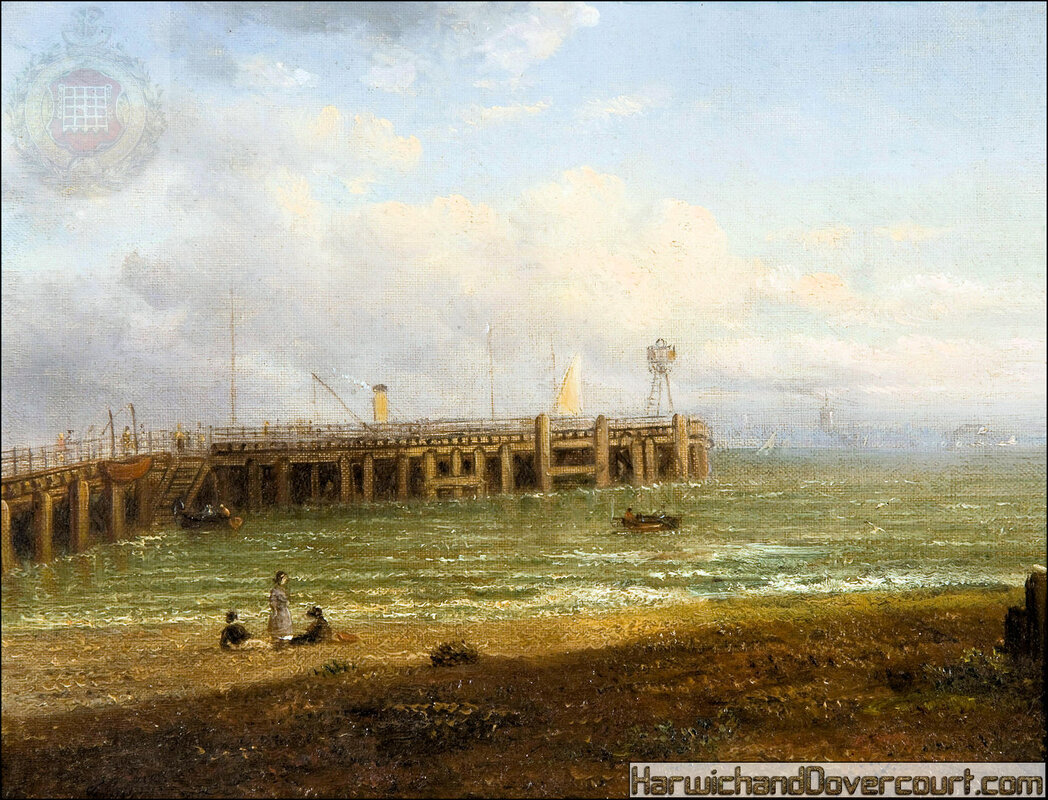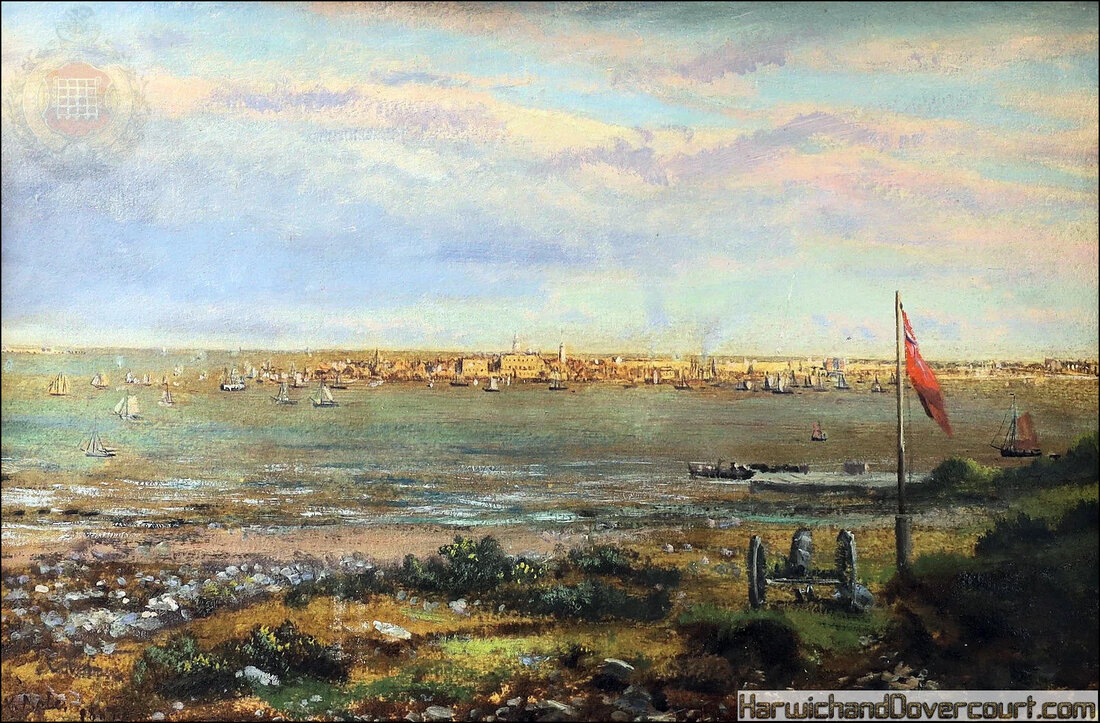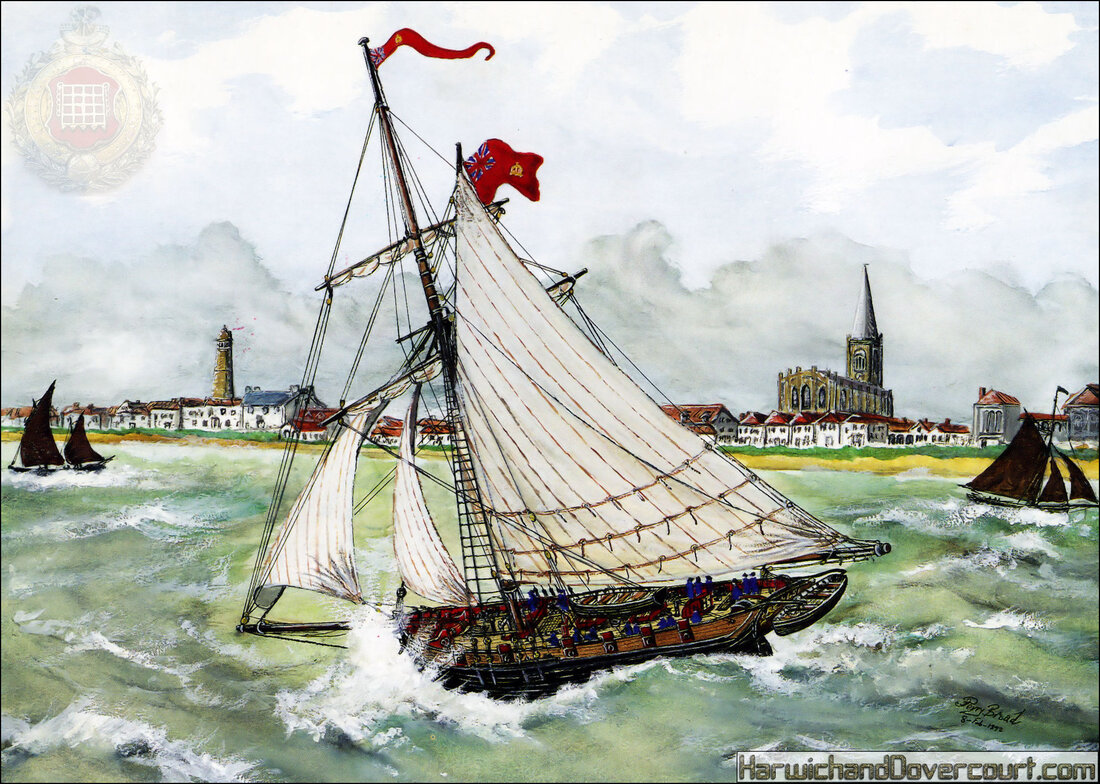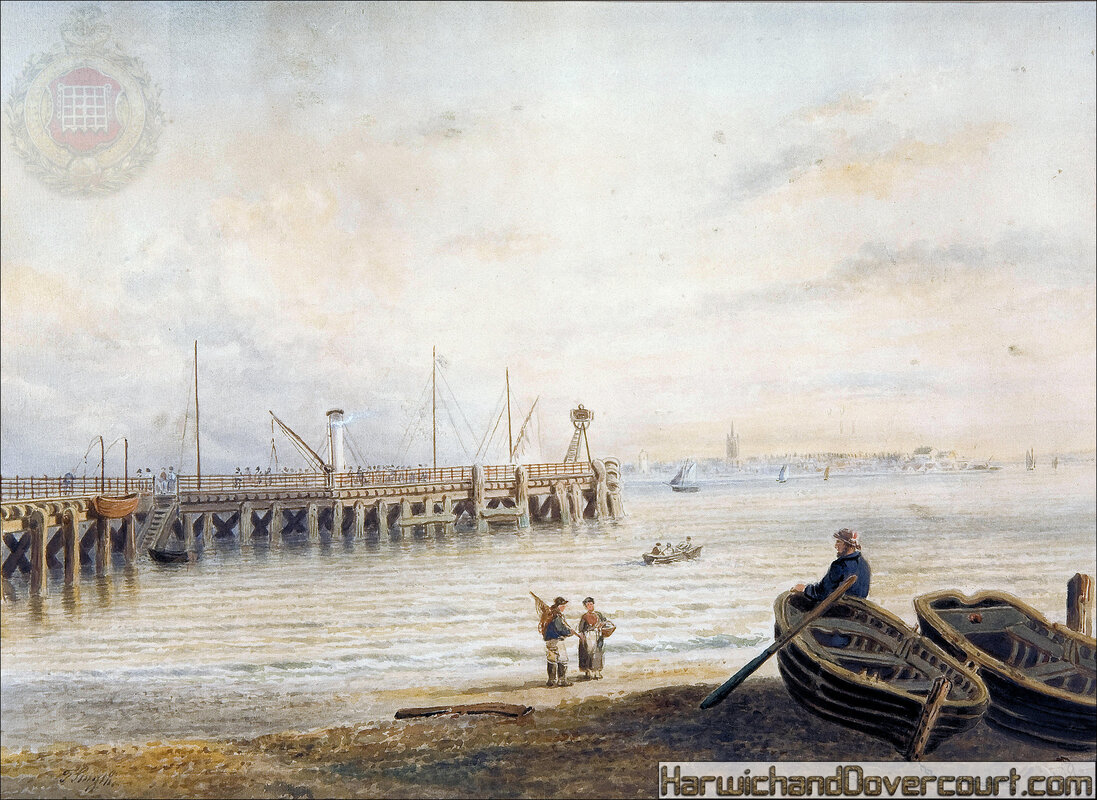~ Canvas, Colours & Inks ~
~ 1800 ~ Harwich, Essex H&D ~
~ 1800 ~ The Boat House, Harwich, Essex H&D ~
~ 1801 ~ Landguard fort from Harwich ~ George Frost (1744-1821) H&D ~
~ 1805 ~ A View near Harwich by John Berney Crome H&D ~
~ 1807 ~ The Mill, Beacon Hill, Harwich H&D ~
~ 1810 ~ F.Molting, Stormy Seas, Harwich H&D ~
Captain Durrant's Sketchbook (1802 ~ 1813)
The fine art collection includes an album of one hundred and forty-two drawing and watercolours, including images of Gosport and Portchester, produced between 1802-1813 by Captain Durrant.
In 1793 King Louis XVI was guillotined and the resulting French Revolutionary Government declared war on Britain. This was the long struggle which developed into the Napoleonic Wars and continued until France was defeated at the Battle of Waterloo in 1815.
Throughout this time the British Navy was seizing ships belonging to France and her allies and bringing them back to England as prizes. The necessity to find places to house the captive crews of these vessels became an increasing problem as hulks, garrisons and castles had to be adapted to incarcerate the prisoners of war. As the conflict intensified there were upwards of 100,000 men imprisoned and the need for prisons gradually moved northwards from the south of England.
The responsibility for guarding and administering these prisons fell to various militia men, one of whom was Captain Durrant. Tradition has it that this home-based officer was seconded from the Leeds Volunteers to the West Yorkshire Regiment, although it is difficult to verify this.
Captain Durrant’s duties appear to have taken him to a variety of postings around the country such as Dover, Gosport, Portchester, Colchester and Norman Cross. An accomplished artist, he has recorded in watercolour paintings and pencil drawings the prisons and environments to which he was posted, thereby providing us with some idea of the conditions in which the Napoleonic prisoners lived.
The album he has left contains approximately one hundred and forty-two pieces, most of which were produced between 1802-1813.
In 1793 King Louis XVI was guillotined and the resulting French Revolutionary Government declared war on Britain. This was the long struggle which developed into the Napoleonic Wars and continued until France was defeated at the Battle of Waterloo in 1815.
Throughout this time the British Navy was seizing ships belonging to France and her allies and bringing them back to England as prizes. The necessity to find places to house the captive crews of these vessels became an increasing problem as hulks, garrisons and castles had to be adapted to incarcerate the prisoners of war. As the conflict intensified there were upwards of 100,000 men imprisoned and the need for prisons gradually moved northwards from the south of England.
The responsibility for guarding and administering these prisons fell to various militia men, one of whom was Captain Durrant. Tradition has it that this home-based officer was seconded from the Leeds Volunteers to the West Yorkshire Regiment, although it is difficult to verify this.
Captain Durrant’s duties appear to have taken him to a variety of postings around the country such as Dover, Gosport, Portchester, Colchester and Norman Cross. An accomplished artist, he has recorded in watercolour paintings and pencil drawings the prisons and environments to which he was posted, thereby providing us with some idea of the conditions in which the Napoleonic prisoners lived.
The album he has left contains approximately one hundred and forty-two pieces, most of which were produced between 1802-1813.

